|
Crystal Ball 2024. Will the Election Year Roar Like the Pre-Election Year Did? Be sure to watch my Crystal Ball 2024 videoconference and my interview with Howard Silverblatt, the senior index analyst of the S&P500. Each year we’re able to see just how far off from, or close to, reality the predictions are. 2023 was a lot stronger than most economists thought it would be, even with five very high-profile bank failures and a USA credit downgrade by Fitch Ratings to AA+. The Wall Street whales decided to stay in stocks (even if many are overvalued). Consumers kept spending. The White House kept lending a hand to student loan borrowers and homeowners who were behind on their mortgage. The Federal Reserve Bank loaned money to keep more banks from failing, and to offer some fuzzy math to keep the bond losses off the earnings reports. All of this financial engineering turned a year that was expected to see a recession into one with an impressive stock rally of 24.9% in the S&P500, as of Dec. 26, 2023. While stocks were simply great in 2023, we can see that the devilish details tell a far more complicated story. Sometimes the headlines we are drawn to, and even the officially declared outcomes, can be misleading. For instance, a recession was predicted for 2022. The U.S. experienced two quarters of economic contraction, which is commonly considered to be a recession. However, the NBER never made it official. So, technically, there was no recession in 2022. However, even without the official label, the S&P500® dropped -19.44% in 2022. Bear markets are also hallmarks of recessions. So 2022 was recession-like in almost everything but name. So what is predicted to happen in 2024? Will the 2023 stock rally continue? Will bonds recover, if interest rates get cut later in the second half of the year? Will housing ever become affordable again? Should you pour cash into safe havens? Which will be hotter: oil or the New Oil, copper? Here are the assets we will cover in this blog. Stocks Bonds Housing Commercial real estate Crypto Gold and Silver Copper: The New Oil And here is more detail on each point. Stocks The Conference Board still thinks there will be a mild recession in the 1st and 2nd quarters of 2024, starting with a contraction of -0.7% in the 1st quarter. While some economists believe that the infallible Feds will achieve the elusive soft landing without a recession, most forecasts call for a slowdown in 2024, from 2.4-2.6% GDP growth in 2023 to 0.9-1.4% in 2024. What does that mean for stocks? As long as there aren’t any bank failures or high profile bankruptcies, stocks could stay buoyant, though lackluster. As you can see in the election-year performance chart below, election years tend to be quite disappointing when compared to the pre-election year Wall Street rally. (The 10-year election year returns are helped by the pandemic 2020 performance of +16% in the S&P500. However, it took printing up $4+ trillion to get us there – something that won’t be happening in 2024.) There are quite a lot of federal guard rails in place to prevent the economy from going off track, including the Bank Term Funding Program, a Veterans Administration Moratorium on Foreclosures, a Homeowner Assistance Fund, an Emergency Rental Assistance Program and a 12-month on-ramp period for student loan borrowers. All of this financial support and a pause on interest rate hikes could keep investors happy to hold on if a mild economic contraction occurs in the first half of 2024. The Federal Reserve Dec. 13, 2023 Summary of Economic Projections signaled up to three rate cuts in the second half of the year – a carrot that could keep investors interested. A robust rally would be a surprise, however. Also, there is a divergence between value and growth, with particularly poor performance in older companies that are laden with excessive debt. I addressed this in greater detail in my blog, “The Underperforming Dow Jones Industrial Average.” (Click to access.) Many companies in the DJIA lost value in 2023. The spectacular performance of Microsoft, Apple, Intel, IBM and Salesforce is responsible for the gains in the DJIA, with the Magnificent 7 leading the index to a new all-time high last week. In our sample pie charts, we have been leaning into the Magnificent 7 in our hot slices as well as in the large cap growth slice. We’ve also been using value replacements, which allow us to diversify by country, some of which offer higher credit quality and yield than the DJIA. (We spend one full day on nest egg strategies at our New Year, New You Financial Freedom Retreat.) Volatility will remain a risk with stock prices being so elevated. The massive swings in share prices over the past three years have been quite a rollercoaster. Many Internet and Artificial Intelligence companies, like Nvidia, are being valued by what they should be worth years from now. Nvidia is a $1.22 trillion dollar company, with only $27.5 billion in annual net profits. With a price-earnings ratio of 64, one earnings report that is less than spectacular can bring the share price crashing back to Earth. Tesla, another member of the Magnificent 7, is still down -37% from its all-time high set on Nov. 5, 2021. As you can see in the chart below, the only two times that stocks have been more expensive than they are today were in the Dot Com Recession and the Great Depression. We know what happened in the Great Depression from our history books. The Dot Com Recession saw the NASDAQ Composite Index plunge by -78% and take 15 years to recover. Buying high is rarely a good idea. If you haven’t rebalanced your nest egg recently, now would be an important time to see and capture all of the gains enjoyed in 2023, while making sure you are properly protected and diversified. Bonds Bonds are tricky. On one hand, we can finally earn a safe(ish) 5% yield. That translates to $50,000 in interest on a million dollars. However, it is important to keep the terms short and the creditworthiness high. Otherwise, we risk losing principal. As you can see in the 1-year performance chart at the top of this blog, long-term government bonds lost even more than stocks did in 2022, at -26.0%. Long-term government bonds lost another -5.89% in 2023. There is an inverse relationship between bonds and interest rates. When the Federal Reserve raises interest rates and tightens monetary policy, bond values plummet (as seen in 2022). When interest rates are cut, bond values can increase (perhaps recovering some of the losses of 2022). Since interest rates might start getting cut in the 2nd half of 2024, bond broker/salesmen might suggest just hanging on or even extending duration. However, due to low credit quality, excessive debt, and the projection that interest rates will remain in the 4.6% range in 2024, a better plan might be to keep the terms short and the creditworthiness high, while being careful of where and how we might consider extending duration by a few years. (Some of my clients have been sold into junk bonds with a maturity date of 30-45 years out – well beyond their own expiration date.) It’s important to do a forensic dive into the safe side of our wealth plan, to read the fine print, and to know what is truly at risk, rather than having blind faith that someone else is protecting our future. Housing The housing market is pretty frozen right now. Interest rates combined with high prices have made buying a home unaffordable in almost every county across the US, with homeownership expenses eating up one-third of wages (source: AttomData). There have been very liberal loan modification and mortgage/foreclosure assistance program in play since the pandemic. This has been a big factor in 5.2% of mortgages being underwater – costing more than the value of the home. (The loans mods put all of the missed payments and fees into the new loan – which is often puts homeowners on the line for more than the value of the home.) This has put some neighborhoods at risk of price declines, including clusters in California, New York, New Jersey and Illinois (source: AttomData). Millennials are ready to start families, and would rather buy a home and build up equity than make the landlord rich. There is a lot of pent-up demand and frustration. Because qualified borrowers are scarce, a lot of people who might want or need to sell a home are not putting it on the market right now. That makes supply tight (even though the underwater mortgages and dried up government support is creating more shadow inventory). This has real estate broker-salesman, including Barbara Corcoran, who owns a real estate company, urging potential homebuyers to buy now even though interest rates and home prices are high. The rationale is that once interest rates get cut, prices are going to rise even higher, due to the HENRYs who are hungry to build up wealth. There certainly are ample predictions for rate cuts in 2024. However, the projections are still calling for a Fed Fund rate of 4.6%. That’s not going to make mortgage loans affordable, especially with home prices still at an all-time high. For those who are really chomping at the bit to buy a new home there are certainly strategies that one can look into, including the shadow market. It’s also very important to check out our 10-point homebuyer checklist before making any binding commitment. I go over some of these strategies in my recent real estate videoconference. The checklist is also located in the Real Estate section of The ABCs of Money, 5th edition. One more word of warning, ex-pat purchasers of Portugal real estate are getting desperate. If you get approached to buy a condo for a great deal with a price cut, don’t take the bait before reading our important alert on Portugal real estate. Portugal has changed the laws for expats. There are a lot of people who got out over their skis, who are getting desperate to offload and trim back on their exposure. Commercial Real Estate Commercial real estate is one of the areas of risk for the economy, as you can see in the survey below, conducted by the Federal Reserve Board. The Treasury Department and Federal Reserve are urging lenders to work with creditworthy commercial real estate developers, rather than just force them into bankruptcy restructuring. The Bank Term Funding Program offers the financial assistance for banks to hold out for another year. However, those CRE companies that are in the most trouble, with very high debt and very low occupancy rates, continue to pose a risk to this distressed industry and the banks, insurance companies, and pension funds that have loaned money to them. As just one example, WeWork filed for Chapter 11 on Nov. 7, 2023. Learn more about CRE in my blog. Cryptocurrency Crypto was the top performer in 2023. Bitcoin started the year at $16,532. As of Dec. 26, 2023, Bitcoin’s value had jumped to just under $42,372, for a return of 156%. This is still -38.6% under the all-time high of $69,000 set on November 21, 2021. Due to the extreme volatility of cryptocurrency, it’s a better idea to include crypto as a hot slice in our pie chart system than it is to put all of our cash into a wallet or Coinbase account. Cryptocurrency is not being used as a currency unless we’re laundering money or buying something illegal. For the most part, it’s a trading platform where whales have been gobbling up Main Street minnows. Our pie chart system with regular rebalancing helps us to be on the right side of the trade, along with the whales, rather than getting drowned in the wake of their tsunami selling. Click over to our blog to learn more. Gold and Silver Gold and silver are a bit like cryptocurrency. When people lose faith in the U.S. dollar, they want a safe haven. When stocks are high, people tend to chase the performance of equities, and ignore old school assets like gold and silver. We’ve effectively been in a secular bull market since the bottom of the Great Recession. Soaring stocks and competition from crypto are a few of the reasons why gold and silver have been such poor performers over the last decade. The U.S. received a credit downgrade from Fitch Ratings on August 1, 2023. However, it did not register with investors at all. When S&P Global downgraded the U.S. on August 5, 2011, both gold and silver rocketed up to their all-time highs. The jury is still out whether or not Gen Z and Millennials will ever get excited about gold and silver. Even with all of the negative headlines of crypto in 2023, cryptocurrency has had an impressive rally. Younger investors love meme stocks. So, if things get worse than expected in the next recession, or if some exogenous shock shatters the sheen of stocks, and gold or silver prices start to soar, they could show up at the party. Gold and silver, like cryptocurrency, see wild swings of valuation. This takes them out of the realm of currency, which is intended to stay constant and safe. You can’t have a dollar that’s worth $69,000 one year and $16,000 the next. These “safe haven” assets have proven to be unstable and even unsafe, particularly if you invest with someone who commits fraud (more common in speculative industries like these). We put our gold and silver into our hot slices. Regular rebalancing will help us to buy low and sell high. It’s very important to remember that the winters of gold and silver can be very long. It took gold a quarter of a century to regain the sky-high gold prices seen in 1980. Copper: the New Oil Copper is essential to the clean energy revolution that is taking place. That has led Goldman Sachs to call it the “new oil.” As you can see in the chart below, copper prices are solid – not as high as the pandemic, but certainly at an attractive price for producers. That is one of the reasons we have listed the copper-rich country of Peru as one of our countries to diversify into. The ETF is one that offers a better yield than most U.S.-based equity funds. Conversely, oil and petrochemical companies are largely losing revenue. The shift to electric vehicles is curtailing demand – particularly in China. Learn more in our blog on the Underperforming DJIA. Bottom Line It’s easy: · To be seduced by headlines when something gets super hot, · To want to make up losses when something tanks, like bonds have, and, · To be complacent when stocks are high. However, a better strategy is to be properly diversified, to rebalance regularly, and to know what is safe in a Debt World, where there is simply too much leverage. It’s time that we all learn the life math that we should have received in high school and college, rather than having blind faith that someone else is protecting our wealth for us. Most managed plans do with the markets do. So they’re going to look pretty great right now, with stocks at an all-time high. However, the lessons of 21st-Century recessions, where most people lose more than half of their wealth, and then take years to crawl back to even, should sober us up, and inspire us to learn these simple, time-proven 21st Century strategies that earned gains in the Dot Com and Great Recessions and outperformed the bull markets in between. For daily money tips, follow me at @nataliewynnepace on my Instagram Broadcast Channel. Join us at our Jan. 13-15, 2024 New Year, New You Financial Freedom Retreat. Get valuable data and tools on how to best invest and monetize real estate. Learn nest egg strategies, how to get hot and diversified (including in EVs, crypto and AI), and what's safe in a Debt World. You'll even discover how to save thousands annually with smarter big-ticket choices. Yes, it's a complete money makeover. Email [email protected] to register. Learn the 15+ things you'll master and read testimonials in the flyer (link below) and on the home page at NataliePace.com. Register with friends and family to receive the best price. "Ten minutes into the first day I was already much smarter about investing than I ever thought I would be in my life and I knew I was in exactly the right place at this retreat. I am amazed at how EASY and FUN it is to make my money work for me and those I love. I think this kind of information should be compulsory in schools. I wish I'd learned this sooner." CM  Join us for our Online New Year, New You Financial Freedom Retreat. Jan. 13-15, 2024. Email [email protected] or call 310-430-2397 to learn more. Register with friends and family to receive the best price. Click for testimonials, pricing, hours & details.  Join us for our Restormel Royal Immersive Adventure Retreat. March 8-15, 2024. Email [email protected] to learn more. Register with friends and family to receive the best price. Click for testimonials, pricing, hours & details. There is very limited availability, and you must register early to ensure that you get the exact room you want. This retreat includes an all-access pass to all of our online training for a full year for two! 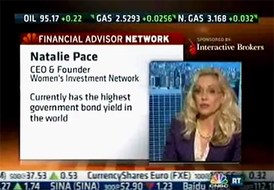 Natalie Wynne Pace is an Advocate for Sustainability, Financial Literacy & Women's Empowerment. Natalie is the bestselling author of The Power of 8 Billion: It's Up to Us and is the co-creator of the Earth Gratitude Project. She has been ranked as a No. 1 stock picker, above over 835 A-list pundits, by an independent tracking agency (TipsTraders). Her book The ABCs of Money remained at or near the #1 Investing Basics e-book on Amazon for over 3 years (in its vertical), with over 120,000 downloads and a mean 5-star ranking. The 5th edition of The ABCs of Money and the 2nd edition of Put Your Money Where Your Heart Is were released in 2021. Follow her on Instagram. Natalie Pace's easy as a pie chart nest egg strategies earned gains in the last two recessions and have outperformed the bull markets in between. That is why her Investor Educational Retreats, books and private coaching are enthusiastically recommended by Nobel Prize winning economist Gary S. Becker, TD AMERITRADE chairman Joe Moglia, Kay Koplovitz and many Main Street investors who have transformed their lives using her Thrive Budget and investing strategies. Click to view a video testimonial from Nilo Bolden. Check out Natalie Pace's Substack on Apple and Spotify. Watch videoconferences and webinars on Youtube. Other Blogs of Interest The Underperforming DJIA, Full of Fossil Fuels and Forever Chemicals. A Spectacular Year for 3 of the Magnificent 7. The Best ROI* (Almost 40%!) & 7 Life Hacks That Save Thousands. Portugal Eliminates Tax Advantages for Ex-Pats. Holiday Gift Giving on any Budget. Including No Budget. Once in a Century Events are Happening Every Day. The Crypto Winter Enters Its 3rd Year. Earn $50,000 or More in Interest. Safely. Finally. Freebies and Deals for Black Friday and Cyber Monday. Auto Strikes End. EV Price Wars Continue. WeWork's Bankruptcy. Half-Empty Office Buildings. Problems in our Personal Wealth Plan. Solutions for Unaffordable Housing. The Magnificent 7 Drag NASDAQ into Another Correction Cruise Ships Give Freebies to Investors. Should You Take the Bait? Should You Take a Cruise? Bonds. Banks. The Treacherous Landscape of Keeping Our Money Safe. 7 Rules of Investing Air B N Bust? Santa Rally 2023 or Time to Get Defensive? Barbie. Oppenheimer. Strikes. Streaming Wars. Netflix. Monero: A Token of Trust? 13 Lifestyle Choices to Reduce Waste, Pollution & CO2 & Save a Boatload of Dough. China Bans Apple 11-Point Green Checklist for Schools. Artificial Intelligence and Nvidia's Blockbuster Earnings Report Biotech in a Post-Pandemic World 10 Wealth Secrets of Billionaires and Royals. What Happened to Cannabis? Bank of America has $100 Billion in Bond Losses (on Paper) The USA AAA Credit Rating is on a Negative Watch. Lithium. Essential to EV Life. I'm Just Not Good at Investing. Investors Ask Natalie. Should I Buy an S&P500 Index Fund? Investors Ask Natalie. Bonds Lost More than Stocks in 2022. 2023 Company of the Year Do Cybersecurity Risks Create Investor Opportunities? Writers Strike, While Streaming CEOs Rake In Hundreds of Millions Annually. I Lost $100,000. Investors Ask Natalie. Artificial Intelligence Report. Micron Banned in China. Intel Slashes Dividend. Buffett Loses $23 Billion. Branson's Virgin Orbit Declares Bankruptcy. Insurance Company Risks. Schwab Loses $41 Billion in Cash Deposits. Fiat. Crypto. Gold. BRICS. Real Estate. Alternative Investments. BRICS Currency. Will the Dollar Become Extinct? The Online Global Earth Gratitude Celebration 7 Green Life Hacks Fossil Fuels Touch Every Part of Our Lives Are There Any Safe, Green Banks? 7 Ways to Stash Your Cash Now. Lessons from the Silicon Valley Bank Failure. Which Countries Offer the Highest Yield for the Lowest Risk? Solar, EVs, Housing, HSAs -- the Highest-Yield in 2023? Why We Are Underweighting Banks and the Financial Industry. 2023 Bond Strategy Emotions are Not Your Friend in Investing Investor IQ Test Investor IQ Test Answers Bonds Lost -26%, Silver Held Strong. Save Thousands Annually With Smarter Energy Choices Is Your FDIC-Insured Cash Really Safe? Money Market Funds, FDIC, SIPC: Are Any of Them Safe? My 24-Year-Old is Itching to Buy a Condo. Should I Help Him? The 12-Step Guide to Successful Investing. The Bank Bail-in Plan on Your Dime. Rebalancing Your Nest Egg IQ Test. Answers to the Rebalancing Your Nest Egg IQ Test. Important Disclaimers Please note: Natalie Pace does not act or operate like a broker. She reports on financial news, and is one of the most trusted sources of financial literacy, education and forensic analysis in the world. Natalie Pace educates and informs individual investors to give investors a competitive edge in their personal decision-making. Any publicly traded companies or funds mentioned by Natalie Pace are not intended to be buy or sell recommendations. ALWAYS do your research and consult an experienced, reputable financial professional before buying or selling any security, and consider your long-term goals and strategies. Investors should NOT be all in on any asset class or individual stocks. Your retirement plan should reflect a diversified strategy, which has been designed with the assistance of a financial professional who is familiar with your goals, risk tolerance, tax needs and more. The "trading" portion of your portfolio should be a very small part of your investment strategy, and the amount of money you invest into individual companies should never be greater than your experience, wisdom, knowledge and patience. Information has been obtained from sources believed to be reliable. However, NataliePace.com does not warrant its completeness or accuracy. Opinions constitute our judgment as of the date of this publication and are subject to change without notice. This material is not intended as an offer or solicitation for the purchase or sale of any financial instrument. Securities, financial instruments or strategies mentioned herein may not be suitable for all investors. The Underperforming Dow Jones Industrial Average. Full of Fossil Fuels and Forever Chemicals.21/12/2023
The Underperforming Dow Jones Industrial Average. Full of Fossil Fuels and Forever Chemicals. In last week’s blog, we talked about the Magnificent 7 being largely responsible for the gains in 2023 – yes, just 7 stocks. The technology-rich NASDAQ Composite Index was far and away the winner on Wall Street this year. Meanwhile, energy, consumer staples, healthcare and utilities are all down. The Dow Jones Industrial Average was the laggard of the 2023 pre-election year rally. This has a lot to do with the older companies in the index that are laden with legacy debt and having to borrow money at a high interest rate, all while experiencing a slowdown in revenue growth. (Email [email protected] if you’d like to receive a Stock Report Card of select Dow components.) However, there is another issue with the “leading blue chip” index. It has a lot of old-school companies that are in the business of fossil fuels, either as a producer or as a top customer – something the world agreed to transition away from at COP28. Fossil Fuels in the DJIA Email [email protected], if you’d like to receive our chart of the 30 companies of the Dow Jones Industrial Average, along with some points about their respective fossil fuel dependency. A lot of the technology companies of the DJIA (Apple, Cisco, IBM, Intel, Microsoft and Salesforce) have goals of powering with renewables 70-100% by 2025. However, 13 of the 30 companies, 43.3%, are leading producers or customers of oil, gas, plastic and other petrochemical products. Here are a few examples…
Dow Inc., 3M, Chevron, Nike, Honeywell, Johnson & Johnson, Procter & Gamble, Verizon, and Walgreens are some of the 30 companies of the Dow Jones Industrial Average that are losing value and dragging down the performance of the index. The spectacular performance of Microsoft, Apple, Intel, IBM and Salesforce is responsible for the gains. Oil/Gas & Chemicals Stock Report Card All of the oil and chemical companies I analyzed have lower revenues this year. Most of the chemical companies have elevated levels of debt. Due to the toxic nature of their products, and the deleterious effects they have on water and soil, many chemical companies face ongoing fines and lawsuits. Email [email protected] if you’d like to receive a Stock Report Card of chemical or oil/gas companies. Palestine, Ohio Toxic Train Derailment The toxic oil-based petrochemicals that were spewed across the air, soil and water of Palestine, Ohio on February 3, 2023, included the following. If you look at what the toxins are used to make, you’ll notice that they touch almost every aspect of our lives, from what our things are packaged in, to what we wear and even our laundry detergent. 3M and Dow Inc. (both in the DJIA) are leading manufacturers of these petrochemicals.
ESG Investing is Missing the E As I mentioned in my blog, ESG investing is missing the E: environment. There are no companies that are involved in renewable energy or other planet-healthy products or services in the S&P Global ESG Index. At least 15 of the companies in the index are oil and gas related. Just 20 of the world’s largest fossil fuel companies are responsible for over 1/3 of the CO2 in the atmosphere – and many are included in the ESG Index. Click to read the blog. Our Retirement Accounts Because the DJIA is widely touted when we think of Wall Street, most of us have DJIA companies in our retirement plans and even our managed brokerage accounts – unless we’ve done a forensic dive to know exactly what we own and why. Many broker-salesmen will put us into ESG funds if we say we want to be more conscious about what we invest in. Getting our portfolio more in line with gains and green requires a little education and some remodeling of our financial house. Fortunately, this is as easy as a pie chart, once we learn the life math that we all should have received in high school and college. It’s our money, and making sure that we keep it is our job – even if we have someone else “managing it.” Bottom Line Whether you are pro-gains or pro-planet, the Dow Jones Industrial Average Index was a problem in 2023. The debt and core business models of many of the companies in the index could continue to be a challenge on profitability and revenue growth in the years to come. These are a few of the reasons why we have been underweighting the DJIA and using value replacement funds in our sample pie charts. (These are just a few of the things you’ll learn at our Financial Freedom Retreat.) For daily money tips, follow me at @nataliewynnepace on my Instagram Broadcast Channel. Join us at our Jan. 13-15, 2024 New Year, New You Financial Freedom Retreat. Get valuable data and tools on how to best invest and monetize real estate. Learn nest egg strategies, how to get hot and diversified (including in EVs, crypto and AI), and what's safe in a Debt World. You'll even discover how to save thousands annually with smarter big-ticket choices. Yes, it's a complete money makeover. Email [email protected] to register. Learn the 15+ things you'll master and read testimonials in the flyer (link below) and on the home page at NataliePace.com. Register with friends and family to receive the best price. "Ten minutes into the first day I was already much smarter about investing than I ever thought I would be in my life and I knew I was in exactly the right place at this retreat. I am amazed at how EASY and FUN it is to make my money work for me and those I love. I think this kind of information should be compulsory in schools. I wish I'd learned this sooner." CM  Join us for our Online New Year, New You Financial Freedom Retreat. Jan. 13-15, 2024. Email [email protected] or call 310-430-2397 to learn more. Register with friends and family to receive the best price. Click for testimonials, pricing, hours & details.  Join us for our Restormel Royal Immersive Adventure Retreat. March 8-15, 2024. Email [email protected] to learn more. Register with friends and family to receive the best price. Click for testimonials, pricing, hours & details. There is very limited availability, and you must register early to ensure that you get the exact room you want. This retreat includes an all-access pass to all of our online training for a full year for two! 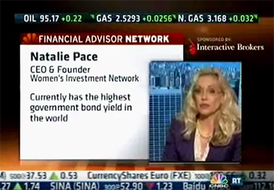 Natalie Wynne Pace is an Advocate for Sustainability, Financial Literacy & Women's Empowerment. Natalie is the bestselling author of The Power of 8 Billion: It's Up to Us and is the co-creator of the Earth Gratitude Project. She has been ranked as a No. 1 stock picker, above over 835 A-list pundits, by an independent tracking agency (TipsTraders). Her book The ABCs of Money remained at or near the #1 Investing Basics e-book on Amazon for over 3 years (in its vertical), with over 120,000 downloads and a mean 5-star ranking. The 5th edition of The ABCs of Money and the 2nd edition of Put Your Money Where Your Heart Is were released in 2021. Follow her on Instagram. Natalie Pace's easy as a pie chart nest egg strategies earned gains in the last two recessions and have outperformed the bull markets in between. That is why her Investor Educational Retreats, books and private coaching are enthusiastically recommended by Nobel Prize winning economist Gary S. Becker, TD AMERITRADE chairman Joe Moglia, Kay Koplovitz and many Main Street investors who have transformed their lives using her Thrive Budget and investing strategies. Click to view a video testimonial from Nilo Bolden. Check out Natalie Pace's Substack on Apple and Spotify. Watch videoconferences and webinars on Youtube. Other Blogs of Interest A Spectacular Year for 3 of the Magnificent 7. The Best ROI* (Almost 40%!) & 7 Life Hacks That Save Thousands. Portugal Eliminates Tax Advantages for Ex-Pats. Holiday Gift Giving on any Budget. Including No Budget. Once in a Century Events are Happening Every Day. The Crypto Winter Enters Its 3rd Year. Earn $50,000 or More in Interest. Safely. Finally. Freebies and Deals for Black Friday and Cyber Monday. Auto Strikes End. EV Price Wars Continue. WeWork's Bankruptcy. Half-Empty Office Buildings. Problems in our Personal Wealth Plan. Solutions for Unaffordable Housing. The Magnificent 7 Drag NASDAQ into Another Correction Cruise Ships Give Freebies to Investors. Should You Take the Bait? Should You Take a Cruise? Bonds. Banks. The Treacherous Landscape of Keeping Our Money Safe. 7 Rules of Investing Air B N Bust? Santa Rally 2023 or Time to Get Defensive? Barbie. Oppenheimer. Strikes. Streaming Wars. Netflix. Monero: A Token of Trust? 13 Lifestyle Choices to Reduce Waste, Pollution & CO2 & Save a Boatload of Dough. China Bans Apple 11-Point Green Checklist for Schools. Artificial Intelligence and Nvidia's Blockbuster Earnings Report Biotech in a Post-Pandemic World 10 Wealth Secrets of Billionaires and Royals. What Happened to Cannabis? Bank of America has $100 Billion in Bond Losses (on Paper) The USA AAA Credit Rating is on a Negative Watch. Lithium. Essential to EV Life. I'm Just Not Good at Investing. Investors Ask Natalie. Should I Buy an S&P500 Index Fund? Investors Ask Natalie. Bonds Lost More than Stocks in 2022. 2023 Company of the Year Do Cybersecurity Risks Create Investor Opportunities? Writers Strike, While Streaming CEOs Rake In Hundreds of Millions Annually. I Lost $100,000. Investors Ask Natalie. Artificial Intelligence Report. Micron Banned in China. Intel Slashes Dividend. Buffett Loses $23 Billion. Branson's Virgin Orbit Declares Bankruptcy. Insurance Company Risks. Schwab Loses $41 Billion in Cash Deposits. Fiat. Crypto. Gold. BRICS. Real Estate. Alternative Investments. BRICS Currency. Will the Dollar Become Extinct? The Online Global Earth Gratitude Celebration 7 Green Life Hacks Fossil Fuels Touch Every Part of Our Lives Are There Any Safe, Green Banks? 7 Ways to Stash Your Cash Now. Lessons from the Silicon Valley Bank Failure. Which Countries Offer the Highest Yield for the Lowest Risk? Solar, EVs, Housing, HSAs -- the Highest-Yield in 2023? Why We Are Underweighting Banks and the Financial Industry. 2023 Bond Strategy Emotions are Not Your Friend in Investing Investor IQ Test Investor IQ Test Answers Bonds Lost -26%, Silver Held Strong. Save Thousands Annually With Smarter Energy Choices Is Your FDIC-Insured Cash Really Safe? Money Market Funds, FDIC, SIPC: Are Any of Them Safe? My 24-Year-Old is Itching to Buy a Condo. Should I Help Him? The 12-Step Guide to Successful Investing. The Bank Bail-in Plan on Your Dime. Rebalancing Your Nest Egg IQ Test. Answers to the Rebalancing Your Nest Egg IQ Test. Important Disclaimers Please note: Natalie Pace does not act or operate like a broker. She reports on financial news, and is one of the most trusted sources of financial literacy, education and forensic analysis in the world. Natalie Pace educates and informs individual investors to give investors a competitive edge in their personal decision-making. Any publicly traded companies or funds mentioned by Natalie Pace are not intended to be buy or sell recommendations. ALWAYS do your research and consult an experienced, reputable financial professional before buying or selling any security, and consider your long-term goals and strategies. Investors should NOT be all in on any asset class or individual stocks. Your retirement plan should reflect a diversified strategy, which has been designed with the assistance of a financial professional who is familiar with your goals, risk tolerance, tax needs and more. The "trading" portion of your portfolio should be a very small part of your investment strategy, and the amount of money you invest into individual companies should never be greater than your experience, wisdom, knowledge and patience. Information has been obtained from sources believed to be reliable. However, NataliePace.com does not warrant its completeness or accuracy. Opinions constitute our judgment as of the date of this publication and are subject to change without notice. This material is not intended as an offer or solicitation for the purchase or sale of any financial instrument. Securities, financial instruments or strategies mentioned herein may not be suitable for all investors. A Spectacular Year for 3 of the Magnificent 7 It’s been a spectacular year for stocks. The S&P500 is up 22.9%. The Dow Jones Industrial Average hit a new intraday high yesterday of 37,347, and has gained 12.5% in 2023. Our retirement plans are happy. However, if we removed just seven stocks from the mix – the Magnificent 7 – the picture is not nearly as rosy. As Michael Hartnett, the chief investment strategist of Bank of America said on NPR, “They were magnificent because everything else was tragic.” That has analysts concerned. When the entire market is riding on the backs of a few companies, it’s more vulnerable than when the rally is more broad-based. The Four Horsemen (Cisco, Dell, Intel and Microsoft) were the Magnificent 7 of 2000, before the Dot Com Recession brought the U.S. economy to its knees. There are a quite few industries that lost value in 2023, including energy, utilities, healthcare and consumer staples. While real estate is still up 8.71% so far this year, commercial real estate is one of the most vulnerable areas of the economy, and has economists quite concerned. What does all of this mean in terms of your year-end and 2024 wealth action plan? Below are the things we’ll cover. The Magnificent Seven Quadruples the Dow The Magnificent Seven as a Hot Slice Growth versus Value Better Yield with Less Risk Volatility Volatility is Smoothed Out by Rebalancing And here is more information on each point. The Magnificent Seven Quadruples the Dow As mentioned above, the 23% gains in the S&P500® year to date is largely due to the Magnificent Seven, Microsoft, Apple, Amazon, Alphabet, Meta, Nvidia and Tesla. If you take them out, the returns are only 6%. Microsoft and Apple have helped the Dow Jones Industrial Average® rise, too. However, technology stocks have soared 53% this year – more than 4 times the gains of the DJIA. This is one of the reasons why investors should always include growth in our nest egg pie chart. It’s also a good idea to lean into technology in our hot slices. The Magnificent Seven as a Hot Slice When we think about the massive returns of the stocks in the Magnificent Seven, we’ve got a great contender for one or more of our hot slices. The TECB ETF offered by iShares has six out of seven of the Magnificent 7 in its top holdings. (We’ve had TECB listed as a hot in our Financial Freedom Retreat for years now.) Using a fund is easier than babysitting individual companies. If you already have TECB and your slice has grown to two slices, it’s a great idea to consider rebalancing to capture gains. If you don’t have this fund and want it, you might consider dollar cost averaging into it, since it’s trading at its all-time high. Growth versus Value In 2022, growth got trounced. As you can see in the performance chart below, the NASDAQ sank by -33%. The Dow Jones Industrial Average was only down -8.8 percent. Four out of the Magnificent Seven are still under their 2021 highs, after 2022’s losses. While Apple, Microsoft and Nvidia are up 10%, 11% and 62%, respectively over the two-year period, Amazon (-11.54%), Alphabet (-8.51%), Meta (-0.63%) and Tesla (-32.72%) are still underwater. Typically value pays higher dividends. In bear markets, value equities can be more buoyant than growth stocks. Growth (performance) and value (stability) play different roles in our portfolio. The problem with value in the U.S. is that with equities at all-time high, with elevated valuations, not much is on sale. Better Yield with Less Risk Many of the 30 DJIA companies have slow growth, elevated levels of debt and high price-earnings ratios. Over half of the S&P500 are at or near junk bond status, including many DJIA components. That is one of the reasons why we are using value replacement funds in our sample pie charts and at our retreats. We can diversify into other countries, where we are often offered a higher yield with lower risk. If you’d like a Stock Report Card of select Dow Jones Industrial Average components, email [email protected]. Volatility In 2019, stocks were at an all-time high. Between February 19 and March 23, 2020, the S&P 500 dropped almost -38%. Stocks soared again in 2021, only to see the S&P500 sink -19.44% in 2022. We’re now back to all-time highs on Wall Street. What a wild ride. We might think the best route is just to Buy and Hold. However, holding onto that rationale requires ignoring what has happened in 21st-century recessions. In the Dot Com Recession, the NASDAQ Composite Index tanked by -78% and took 15 years to recover. The Great Recession saw the Dow Jones Industrial Average sink -55%, to a low of 6547 (yes, 6547!) and took almost 7 years to recover. As we get closer to retirement, we can’t afford to lose half of our wealth and then hope and pray to crawl back to even during the bull market. That is why it is so important to be properly diversified, and to rebalance regularly. The pandemic was hardly a recession at all because we printed up over $5 trillion and handed it out to everybody with a heartbeat, and the corporations and businesses they ran. Liquidity run amok creates inflation. Now it’s expensive and difficult to access capital. Volatility is Smoothed Out by Rebalancing Not only is volatility smoothed out by rebalancing, this strategy also allows you to keep your wealth growing. When stocks are high, you capture gains and trim the slice back to where it should be. Your nest egg grows, and you protect the gains you’ve made. When stocks are low, you have the money to buy low. It’s important to remember that most people do not buy low because they can’t. When you lose too much of your wealth, you don’t have any liquidity to take advantage of the stock and real estate sales that abound. Your FICO score plunges, making it even more costly and cumbersome to borrow. Click to take our Rebalancing IQ Test. It’s important to know exactly what we own and why now, and how diversified and protected we really are. Rather than having blind faith that someone else is protecting our wealth, we must be the boss of our money. It’s important to do this when stocks are high – to fix the roof while the sun is still shining. When we wait for the headlines that a disaster has occurred, it’s too late to protect our wealth. If the plan isn’t sound and we lose a lot, as most people do in bear markets, recessions and other economic shocks, our wealth can drop precipitously before we can take action to protect it. We’ll be in that position of having to hope and pray that we recover losses. Rather than ride the Wall Street Rollercoaster, why not learn the life math that we all should have received in high school and college? Join us at our New Year, New You Financial Freedom Retreat. You can also reach out to our team for an unbiased 2nd opinion. Email [email protected] to learn more. Bottom Line It’s easy to be complacent, and just rejoice when stocks are high. However, that’s exactly when we should be capturing gains, rebalancing, and taking the time to make sure that our safe side is earning 5%, without putting our money at risk. Knowing what we own means that we are aware that many value stocks and funds lost money this year, while 3 companies in the Magnificent 7 soared to new heights, making everyone, even the Dogs of the Dow, look sexy. Modern Portfolio Theory with regular rebalancing is a time-proven, 21st Century strategy. It’s easy-as-a-pie-chart with our tools and information. (Many investors are erroneously told that their plan is based on MPT, when it actually is not properly diversified and protected.) For daily money tips, follow me at @nataliewynnepace on my Instagram Broadcast Channel. Join us at our Jan. 13-15, 2024 New Year, New You Financial Freedom Retreat. Get valuable data and tools on how to best invest and monetize real estate. Learn nest egg strategies, how to get hot and diversified (including in EVs, crypto and AI), and what's safe in a Debt World. You'll even discover how to save thousands annually with smarter big-ticket choices. Yes, it's a complete money makeover. Email [email protected] to register. Learn the 15+ things you'll master and read testimonials in the flyer (link below) and on the home page at NataliePace.com. Register with friends and family to receive the best price. "Ten minutes into the first day I was already much smarter about investing than I ever thought I would be in my life and I knew I was in exactly the right place at this retreat. I am amazed at how EASY and FUN it is to make my money work for me and those I love. I think this kind of information should be compulsory in schools. I wish I'd learned this sooner." CM  Join us for our Online New Year, New You Financial Freedom Retreat. Jan. 13-15, 2024. Email [email protected] or call 310-430-2397 to learn more. Register with friends and family to receive the best price. Click for testimonials, pricing, hours & details.  Join us for our Restormel Royal Immersive Adventure Retreat. March 8-15, 2024. Email [email protected] to learn more. Register with friends and family to receive the best price. Click for testimonials, pricing, hours & details. There is very limited availability, and you must register early to ensure that you get the exact room you want. This retreat includes an all-access pass to all of our online training for a full year for two! 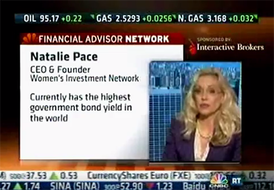 Natalie Wynne Pace is an Advocate for Sustainability, Financial Literacy & Women's Empowerment. Natalie is the bestselling author of The Power of 8 Billion: It's Up to Us and is the co-creator of the Earth Gratitude Project. She has been ranked as a No. 1 stock picker, above over 835 A-list pundits, by an independent tracking agency (TipsTraders). Her book The ABCs of Money remained at or near the #1 Investing Basics e-book on Amazon for over 3 years (in its vertical), with over 120,000 downloads and a mean 5-star ranking. The 5th edition of The ABCs of Money and the 2nd edition of Put Your Money Where Your Heart Is were released in 2021. Follow her on Instagram. Natalie Pace's easy as a pie chart nest egg strategies earned gains in the last two recessions and have outperformed the bull markets in between. That is why her Investor Educational Retreats, books and private coaching are enthusiastically recommended by Nobel Prize winning economist Gary S. Becker, TD AMERITRADE chairman Joe Moglia, Kay Koplovitz and many Main Street investors who have transformed their lives using her Thrive Budget and investing strategies. Click to view a video testimonial from Nilo Bolden. Check out Natalie Pace's Substack on Apple and Spotify. Watch videoconferences and webinars on Youtube. Other Blogs of Interest The Best ROI* (Almost 40%!) & 7 Life Hacks That Save Thousands. Portugal Eliminates Tax Advantages for Ex-Pats. Holiday Gift Giving on any Budget. Including No Budget. Once in a Century Events are Happening Every Day. The Crypto Winter Enters Its 3rd Year. Earn $50,000 or More in Interest. Safely. Finally. Freebies and Deals for Black Friday and Cyber Monday. Auto Strikes End. EV Price Wars Continue. WeWork's Bankruptcy. Half-Empty Office Buildings. Problems in our Personal Wealth Plan. Solutions for Unaffordable Housing. The Magnificent 7 Drag NASDAQ into Another Correction Cruise Ships Give Freebies to Investors. Should You Take the Bait? Should You Take a Cruise? Bonds. Banks. The Treacherous Landscape of Keeping Our Money Safe. 7 Rules of Investing Air B N Bust? Santa Rally 2023 or Time to Get Defensive? Barbie. Oppenheimer. Strikes. Streaming Wars. Netflix. Monero: A Token of Trust? 13 Lifestyle Choices to Reduce Waste, Pollution & CO2 & Save a Boatload of Dough. China Bans Apple 11-Point Green Checklist for Schools. Artificial Intelligence and Nvidia's Blockbuster Earnings Report Biotech in a Post-Pandemic World 10 Wealth Secrets of Billionaires and Royals. What Happened to Cannabis? Bank of America has $100 Billion in Bond Losses (on Paper) The USA AAA Credit Rating is on a Negative Watch. Lithium. Essential to EV Life. I'm Just Not Good at Investing. Investors Ask Natalie. Should I Buy an S&P500 Index Fund? Investors Ask Natalie. Bonds Lost More than Stocks in 2022. 2023 Company of the Year Do Cybersecurity Risks Create Investor Opportunities? Writers Strike, While Streaming CEOs Rake In Hundreds of Millions Annually. I Lost $100,000. Investors Ask Natalie. Artificial Intelligence Report. Micron Banned in China. Intel Slashes Dividend. Buffett Loses $23 Billion. Branson's Virgin Orbit Declares Bankruptcy. Insurance Company Risks. Schwab Loses $41 Billion in Cash Deposits. Fiat. Crypto. Gold. BRICS. Real Estate. Alternative Investments. BRICS Currency. Will the Dollar Become Extinct? The Online Global Earth Gratitude Celebration 7 Green Life Hacks Fossil Fuels Touch Every Part of Our Lives Are There Any Safe, Green Banks? 7 Ways to Stash Your Cash Now. Lessons from the Silicon Valley Bank Failure. Which Countries Offer the Highest Yield for the Lowest Risk? Solar, EVs, Housing, HSAs -- the Highest-Yield in 2023? Why We Are Underweighting Banks and the Financial Industry. 2023 Bond Strategy Emotions are Not Your Friend in Investing Investor IQ Test Investor IQ Test Answers Bonds Lost -26%, Silver Held Strong. Save Thousands Annually With Smarter Energy Choices Is Your FDIC-Insured Cash Really Safe? Money Market Funds, FDIC, SIPC: Are Any of Them Safe? My 24-Year-Old is Itching to Buy a Condo. Should I Help Him? The 12-Step Guide to Successful Investing. The Bank Bail-in Plan on Your Dime. Rebalancing Your Nest Egg IQ Test. Answers to the Rebalancing Your Nest Egg IQ Test. Important Disclaimers Please note: Natalie Pace does not act or operate like a broker. She reports on financial news, and is one of the most trusted sources of financial literacy, education and forensic analysis in the world. Natalie Pace educates and informs individual investors to give investors a competitive edge in their personal decision-making. Any publicly traded companies or funds mentioned by Natalie Pace are not intended to be buy or sell recommendations. ALWAYS do your research and consult an experienced, reputable financial professional before buying or selling any security, and consider your long-term goals and strategies. Investors should NOT be all in on any asset class or individual stocks. Your retirement plan should reflect a diversified strategy, which has been designed with the assistance of a financial professional who is familiar with your goals, risk tolerance, tax needs and more. The "trading" portion of your portfolio should be a very small part of your investment strategy, and the amount of money you invest into individual companies should never be greater than your experience, wisdom, knowledge and patience. Information has been obtained from sources believed to be reliable. However, NataliePace.com does not warrant its completeness or accuracy. Opinions constitute our judgment as of the date of this publication and are subject to change without notice. This material is not intended as an offer or solicitation for the purchase or sale of any financial instrument. Securities, financial instruments or strategies mentioned herein may not be suitable for all investors. The Best ROI* (Almost 40%!) & 7 Life Hacks That Save Thousands. *Return on Investment If I told you that you could make almost 40% return on a safe bond, would you want to learn more? What if saving money with brave, unconventional choices worked even better than trying to work your fingers to the bone earning more income? While not every life hack mentioned below will be right for your situation, and it’s easy to stay in our status quo even when life doesn’t add up, I encourage you to read through each possibility and dive in deeper on the ones that have even an inkling of interest to you. Breaking old habits isn’t easy, but when we do, there can be rainbows, butterflies and even a pot of gold on the other side. There can be literally tens of thousands of dollars that we can repurpose every year away from our “bills”” toward things that we love more. We might not think that we have any choice in the matter. However, each bill we toss out the window can bring thousands, sometimes even tens of thousands of dollars every year, that we can spend and invest on things that bring greater dividends to our lives. Below are just a few samples of what’s possible, alongside real-life stories of people who have embraced and benefited from them. 7 life Hacks that Save Tens of Thousands of Dollars Annually and 1 Safe “Bond” that can Earn a 40% ROI Solar College Commute Health Insurance Housing Energy Efficiency Water And here is more information on each point. Solar Saves Thousands Annually. C’s solar Last year a friend installed solar. She’s absolutely thrilled with the results. She is saving $7200 every year. Her payback time on the solar is 2.6 years. Thereafter that $7200/year in savings is hers to keep and spend on things she likes a lot more than utility companies. Here’s the math. Cost of the panels $26,667 Tax credit $8000 Net cost $18,667 Annual savings on her electric bill: $7200 Payback time: 2.6 years Annualized gain if this were a fixed income investment (after the payback): 38.6% Also good for the planet. Clearly, receiving almost 40% return on investment is one of the best returns out there. Additionally, your solar panels are not going to be subject to the wild rides of the Wall Street rollercoaster. However, since your stock broker/salesman cannot offer you solar panels and does not benefit from suggesting them, you’re unlikely to hear this formula and amazing ROI. Additionally, there is a lot of noise, sponsored by old school utility and oil/gas providers, that tries to convince us (or force us) not to buy solar. The person who sells you solar panels is also a salesman. That’s why it’s important for us to go through the solar checklist before we get our quote. Read the “How to Save Thousands Annually with Smarter Energy Choices” chapter of The ABCs of Money, 5th edition. Be sure to consider whether or not you’re going to power your electric vehicle with solar. College Many teens get roped into the college experience, whether or not it is right for them. If we exit college with massive debt and a monthly bill that forces us to move into our parent’s garage, we may not think college was worth it. College debt forced Millennials to delay their home purchase by an average of 7 years. The ABCs of Money for College outlines many steps that parents and teens can take to get a better degree for half the cost, and ways to determine the best next step after high school. Is a gap year a good idea in order to gain perspective on life? Is a trade better matched with your teen’s passions and talents? What are the jobs of tomorrow, and how can that help to inform our decision-making? How much should you put into the college savings account, and what kind of return should you expect? All of that (and more) is included in The ABCs of Money for College. Parents should start the process when their child is born. Reduce, Green or Eliminate your Commute Most people spend almost $8000 every year on their personal vehicle. In a recent coaching session, one parent was complaining that his car insurance doubled from $4000 a year to $8000 when he added a teen driver to the coverage. The family of 4 has four cars in the family in the city that has very good public transportation and a lot of bike lanes, bike share, and e-scooters. That extra $4000 in insurance also doesn’t include the car payments, the gasoline and the maintenance on the vehicles (or the 2nd teen who is almost driving age). Imagine if $4,000 were put into their college savings plan or a dependent IRA, where it has the possibility to compound gains, instead of flying out the window, making the car insurance company rich. When I spoke with the Mayor of Santa Monica a few years ago, he shared that his family of four adults has five bikes and one car. Occasionally, someone will have to call a cab or rideshare. However, the savings, including cabs, is still a fraction of what it would be to insure four cars and drivers. I personally use public transportation, bikes, e-scooters and walking for the majority of my transportation needs. Occasionally, I rent a car. My transportation costs are a fraction of what they were before, and I enjoy greater health as a result of peddling to my destination, instead of sitting in gridlock traffic. Whether you work from home a few days a week, walk or bike for local errands, consolidate your driving needs to one car or become a bike commuter, is there a way to stop making the gasoline and car insurance company rich and live a richer life? Health Savings Accounts Health savings accounts offer many cost-saving benefits. They work best if you and your family are healthy. You’ll still have the protection of health insurance – with a much higher deductible (which can be covered by the money in your HSA). Benefits of HSAs · Dramatically lower health premiums · Build up your own long-term healthcare retirement account · Tax credit · Stop making the health insurance company, rich, and use the thousands of dollars in annual savings to enrich your own life Learn more at IRS.gov and in the 1st chapter of The ABCs of Money, 5th edition. Community Housing Multigenerational housing is gaining in popularity. When we stop making the landlord rich, we can start building up equity with the goal of owning our own home free and clear before we retire. Thinking bigger often affords us even more personal space and time. Many times, the most expensive housing option is the smallest one. Splitting a much bigger space can result in $19,000 saved annually for each family in a shared home, with other benefits as well. I recently discussed this with Carmel Boss, the founder and CEO of Co-Abode.org. Watch our conversation on my YouTube.com/NataliePace channel. Did you know that women in India are more likely to be CEOs than in America? Multigenerational homes, where the grandparents provide childcare and do the cooking and cleaning, free up the mother to pursue her career goals. What could you do with $19,000 in annual savings? Is that enough incentive to sound the possibilities of how shared housing might work for you? Energy Efficiency We talked about how solar is saving C $7200 every year. Solar is great for sunny states but might not be the best choice for your neighborhood. However, everyone can benefit from smarter energy choices. Even without solar, energy efficiency upgrades to our own home can save thousands of dollars on the electric bill annually. It is also very good for the planet. I go over many energy saving tips in The ABCs of Money, 5th edition. If you’ve never learned the difference between your energy hogs and vampires, and how simple gadgets can save massive megawattage, this information will be a budget-changer. Native, Regenerative Landscaping Water is becoming scarcer, is in high demand and is expensive. Yet, when I consulted with Mark Nelson, a Biospherian and the author of The Wastewater Gardener, I discovered that he had managed water for two years in a closed environment when eight humans were locked inside the Biosphere 2. (Click to watch our Earth Gratitude feature with Mark and others.) Many cities, especially those where drought is a concern, offer incentives for getting rid of the carpet of grass that so many homeowners have. Good Neighbor Gardens is one nonprofit that helps homeowners to transition from wasteful expensive landscaping to farming their own yard. Adding in landscaping that is appropriate to your microclimate saves a lot of money and water, and also attracts important pollinators, birds, and other wildlife that are essential to biodiversity. Imagine if you save money on your water and your food bill. Another benefit of having native plants, mulch, and other carefully crafted gardens is that they absorb water better in case of the occasional deluge that can happen even in drought areas. Grey water recycling is another great budget hack. Shower, laundry and sink water can be used to water our gardens. Using a simple hose from the washing machine for this purpose is very affordable. However, an investment in proper plumbing can pay for itself quickly, offering cost savings for years to come. Pools and jacuzzis were popular back in the day, but are energy and water hogs. Many owners are spending an extra $1,200 or more annually on electricity and close to that amount on water and chlorine. Natural pools take away the costs of electricity and chlorine, and are clearly a better choice for water conservation and sustainability. As with many remodeling projects, the energy and water savings will pay back the investment in a certain timeframe, and thereafter you’ll have that money to keep. Bottom Line Sustainability and financial freedom go hand-in-hand. We can save thousands of dollars annually with smarter energy and budget choices. That means we stop making billionaires rich, and end our financial support of fossil fuel companies and polluters. We then have a lot more money for things we love more than plastic, gasoline, banks and insurance. These choices are also healthier for our home planet. Join us at our New Year New You Financial Freedom retreat, which has a very strong focus on the environment, teaching us how to protect our wealth, earn money while we sleep, save thousands annually and live a richer life. Learn more at https://www.nataliepace.com/. For daily money tips, follow me at @nataliewynnepace on my Instagram Broadcast Channel. Join us at our Jan. 13-15, 2024 New Year, New You Financial Freedom Retreat. Get valuable data and tools on how to best invest and monetize real estate. Learn nest egg strategies, how to get hot and diversified (including in EVs, crypto and AI), and what's safe in a Debt World. You'll even discover how to save thousands annually with smarter big-ticket choices. Yes, it's a complete money makeover. Email [email protected] to register. Learn the 15+ things you'll master and read testimonials in the flyer (link below) and on the home page at NataliePace.com. Register with friends and family to receive the best price. "Ten minutes into the first day I was already much smarter about investing than I ever thought I would be in my life and I knew I was in exactly the right place at this retreat. I am amazed at how EASY and FUN it is to make my money work for me and those I love. I think this kind of information should be compulsory in schools. I wish I'd learned this sooner." CM  Join us for our Online New Year, New You Financial Freedom Retreat. Jan. 13-15, 2024. Email [email protected] or call 310-430-2397 to learn more. Register with friends and family to receive the best price. Click for testimonials, pricing, hours & details.  Join us for our Restormel Royal Immersive Adventure Retreat. March 8-15, 2024. Email [email protected] to learn more. Register with friends and family to receive the best price. Click for testimonials, pricing, hours & details. There is very limited availability, and you must register early to ensure that you get the exact room you want. This retreat includes an all-access pass to all of our online training for a full year for two!  Natalie Pace at the Ritz Carlton, Powerscourt, Ireland. Photo by: Marie Commiskey. Natalie Pace at the Ritz Carlton, Powerscourt, Ireland. Photo by: Marie Commiskey. Natalie Wynne Pace is an Advocate for Sustainability, Financial Literacy & Women's Empowerment. Natalie is the bestselling author of The Power of 8 Billion: It's Up to Us and is the co-creator of the Earth Gratitude Project. She has been ranked as a No. 1 stock picker, above over 835 A-list pundits, by an independent tracking agency (TipsTraders). Her book The ABCs of Money remained at or near the #1 Investing Basics e-book on Amazon for over 3 years (in its vertical), with over 120,000 downloads and a mean 5-star ranking. The 5th edition of The ABCs of Money and the 2nd edition of Put Your Money Where Your Heart Is were released in 2021. Follow her on Instagram. Natalie Pace's easy as a pie chart nest egg strategies earned gains in the last two recessions and have outperformed the bull markets in between. That is why her Investor Educational Retreats, books and private coaching are enthusiastically recommended by Nobel Prize winning economist Gary S. Becker, TD AMERITRADE chairman Joe Moglia, Kay Koplovitz and many Main Street investors who have transformed their lives using her Thrive Budget and investing strategies. Click to view a video testimonial from Nilo Bolden. Check out Natalie Pace's Substack on Apple and Spotify. Watch videoconferences and webinars on Youtube. Other Blogs of Interest Portugal Eliminates Tax Advantages for Ex-Pats. Holiday Gift Giving on any Budget. Including No Budget. Once in a Century Events are Happening Every Day. The Crypto Winter Enters Its 3rd Year. Earn $50,000 or More in Interest. Safely. Finally. Freebies and Deals for Black Friday and Cyber Monday. Auto Strikes End. EV Price Wars Continue. WeWork's Bankruptcy. Half-Empty Office Buildings. Problems in our Personal Wealth Plan. Solutions for Unaffordable Housing. The Magnificent 7 Drag NASDAQ into Another Correction Cruise Ships Give Freebies to Investors. Should You Take the Bait? Should You Take a Cruise? Bonds. Banks. The Treacherous Landscape of Keeping Our Money Safe. 7 Rules of Investing Air B N Bust? Santa Rally 2023 or Time to Get Defensive? Barbie. Oppenheimer. Strikes. Streaming Wars. Netflix. Monero: A Token of Trust? 13 Lifestyle Choices to Reduce Waste, Pollution & CO2 & Save a Boatload of Dough. China Bans Apple 11-Point Green Checklist for Schools. Artificial Intelligence and Nvidia's Blockbuster Earnings Report Biotech in a Post-Pandemic World 10 Wealth Secrets of Billionaires and Royals. What Happened to Cannabis? Bank of America has $100 Billion in Bond Losses (on Paper) The USA AAA Credit Rating is on a Negative Watch. Lithium. Essential to EV Life. I'm Just Not Good at Investing. Investors Ask Natalie. Should I Buy an S&P500 Index Fund? Investors Ask Natalie. Bonds Lost More than Stocks in 2022. 2023 Company of the Year Do Cybersecurity Risks Create Investor Opportunities? Writers Strike, While Streaming CEOs Rake In Hundreds of Millions Annually. I Lost $100,000. Investors Ask Natalie. Artificial Intelligence Report. Micron Banned in China. Intel Slashes Dividend. Buffett Loses $23 Billion. Branson's Virgin Orbit Declares Bankruptcy. Insurance Company Risks. Schwab Loses $41 Billion in Cash Deposits. Fiat. Crypto. Gold. BRICS. Real Estate. Alternative Investments. BRICS Currency. Will the Dollar Become Extinct? The Online Global Earth Gratitude Celebration 7 Green Life Hacks Fossil Fuels Touch Every Part of Our Lives Are There Any Safe, Green Banks? 7 Ways to Stash Your Cash Now. Lessons from the Silicon Valley Bank Failure. Which Countries Offer the Highest Yield for the Lowest Risk? Solar, EVs, Housing, HSAs -- the Highest-Yield in 2023? Why We Are Underweighting Banks and the Financial Industry. 2023 Bond Strategy Emotions are Not Your Friend in Investing Investor IQ Test Investor IQ Test Answers Bonds Lost -26%, Silver Held Strong. Save Thousands Annually With Smarter Energy Choices Is Your FDIC-Insured Cash Really Safe? Money Market Funds, FDIC, SIPC: Are Any of Them Safe? My 24-Year-Old is Itching to Buy a Condo. Should I Help Him? The 12-Step Guide to Successful Investing. The Bank Bail-in Plan on Your Dime. Rebalancing Your Nest Egg IQ Test. Answers to the Rebalancing Your Nest Egg IQ Test. Important Disclaimers Please note: Natalie Pace does not act or operate like a broker. She reports on financial news, and is one of the most trusted sources of financial literacy, education and forensic analysis in the world. Natalie Pace educates and informs individual investors to give investors a competitive edge in their personal decision-making. Any publicly traded companies or funds mentioned by Natalie Pace are not intended to be buy or sell recommendations. ALWAYS do your research and consult an experienced, reputable financial professional before buying or selling any security, and consider your long-term goals and strategies. Investors should NOT be all in on any asset class or individual stocks. Your retirement plan should reflect a diversified strategy, which has been designed with the assistance of a financial professional who is familiar with your goals, risk tolerance, tax needs and more. The "trading" portion of your portfolio should be a very small part of your investment strategy, and the amount of money you invest into individual companies should never be greater than your experience, wisdom, knowledge and patience. Information has been obtained from sources believed to be reliable. However, NataliePace.com does not warrant its completeness or accuracy. Opinions constitute our judgment as of the date of this publication and are subject to change without notice. This material is not intended as an offer or solicitation for the purchase or sale of any financial instrument. Securities, financial instruments or strategies mentioned herein may not be suitable for all investors. Portugal Eliminates the Tax Advantages for Ex-Pats We all know someone who has purchased a place in Portugal. The Portuguese government was keen to attract foreign investment and reduce its deficit and debt, after enduring hardship, austerity and near bankruptcy in the wake of the Great Recession. (Portugal was one of the infamous PIGS countries during the Financial Crisis of 2008, and still has a Debt to GDP of 119%.) As part of its economic recovery plan, foreigners could get a golden VISA by investing and creating jobs in Portugal, and there was a special 10-year tax break for “non-habitual residents.” (Portugal is a socialist country. The personal income tax rate in Portugal can run as high as 48%.) Policies have changed dramatically this year, however. The Golden VISA has new restrictions, and there is a bureaucratic log-jam on processing them. There is a ban on new Airbnb licenses, except in rural areas. On November 29, 2023, the Portuguese Parliament voted to phase out the NHR tax breaks. Anyone already in the plan will continue through their 10-year period. However, beginning on January 1, 2024, new residents will no longer be eligible. Why the Change? While the tax and VISA incentives did indeed attract foreign investment in droves, it also sparked soaring home prices. Over the last eight years, home prices are up 137% (source: Reuters/Confidencial Imobiliario). Rents have rocketed up 65% or more. Portugal is one of the more modest countries in terms of income. The spike in housing costs have forced some workers to live in tents, rather than pay all of their income for rent. Locals are taking to the streets in protest, with many dressed up as the Monopoly mascot, shouting, “Housing is a right.” On November 29, 2023, the ousted Prime Minister António Costa defended the policies of his government, saying, “Throughout these eight years, we turned the leaf on austerity and took the country from a situation of excessive deficit to one of solid and peaceful budgetary stability that now broadens the freedom of political choices.” Costa resigned on November 7, 2023, over allegations of corruption. A Special Election is scheduled for March 2024. The Socialist Party has the majority of seats in Parliament. The political and unaffordable housing crises, along with higher interest rates, has economists projecting a slowdown in GDP in Portugal from 2.2% in 2023 to 1.5% in 2024. Everyone Wants to Move to Portugal. Should You? Pluses Portugal is one of the most affordable countries in Europe Food is cheap Great public transport Wonderful weather Beautiful beaches Property rights and judicial effectiveness score high on the Index of Economic Freedom Crypto-friendly Minuses Housing is unaffordable for the locals. (This creates political instability and can cause clashes with tourists.) New Airbnb restrictions. (If you’re a part-timer trying to rent out your place, this may be unavailable to you.) Chasing gains. (Buying high is rarely a good idea, especially when home prices are unaffordable and the tax incentives for ex-pats have dried up. Less demand puts downward pressure on prices.) Socialist country. (High taxes.) Political uncertainty, protests and tighter policy toward ex-pats and digital nomads. Bottom Line Every soul has her own geography. If Portugal is your place, and you’ve fallen in love with the land, the locals and the language, then navigating through the new tax, hosting and VISA laws could be worth it. If you’re looking to make a quick buck, you may be on the wrong side of that trade. Before making any real estate purchase, which can be illiquid and requires capital to maintain, it is very important to answer the 10-Point Checklist that is featured in the Real Estate section of The ABCs of Money, 5th edition. I’ll be discussing all of this in greater depth in my December 14, 2023 free videoconference. Email [email protected] with VIDEOCON in the subject line to join us live. (You’ll automatically receive the logon instructions if you’re already on the list.) Join us at our Jan. 13-15, 2024 New Year, New You Financial Freedom Retreat. Get valuable data and tools on how to best invest and monetize real estate. Learn nest egg strategies, how to get hot and diversified (including in EVs, crypto and AI), and what's safe in a Debt World. You'll even discover how to save thousands annually with smarter big-ticket choices. Yes, it's a complete money makeover. Email [email protected] to register. Learn the 15+ things you'll master and read testimonials in the flyer (link below) and on the home page at NataliePace.com. Register with friends and family to receive the best price. "Ten minutes into the first day I was already much smarter about investing than I ever thought I would be in my life and I knew I was in exactly the right place at this retreat. I am amazed at how EASY and FUN it is to make my money work for me and those I love. I think this kind of information should be compulsory in schools. I wish I'd learned this sooner." CM  Join us for our Online New Year, New You Financial Freedom Retreat. Jan. 13-15, 2024. Email [email protected] or call 310-430-2397 to learn more. Register with friends and family to receive the best price. Click for testimonials, pricing, hours & details.  Join us for our Restormel Royal Immersive Adventure Retreat. March 8-15, 2024. Email [email protected] to learn more. Register with friends and family to receive the best price. Click for testimonials, pricing, hours & details. There is very limited availability, and you must register early to ensure that you get the exact room you want. This retreat includes an all-access pass to all of our online training for a full year for two!  Natalie Pace at the Ritz Carlton, Powerscourt, Ireland. Photo by: Marie Commiskey. Natalie Pace at the Ritz Carlton, Powerscourt, Ireland. Photo by: Marie Commiskey. Natalie Wynne Pace is an Advocate for Sustainability, Financial Literacy & Women's Empowerment. Natalie is the bestselling author of The Power of 8 Billion: It's Up to Us and is the co-creator of the Earth Gratitude Project. She has been ranked as a No. 1 stock picker, above over 835 A-list pundits, by an independent tracking agency (TipsTraders). Her book The ABCs of Money remained at or near the #1 Investing Basics e-book on Amazon for over 3 years (in its vertical), with over 120,000 downloads and a mean 5-star ranking. The 5th edition of The ABCs of Money and the 2nd edition of Put Your Money Where Your Heart Is were released in 2021. Follow her on Instagram. Natalie Pace's easy as a pie chart nest egg strategies earned gains in the last two recessions and have outperformed the bull markets in between. That is why her Investor Educational Retreats, books and private coaching are enthusiastically recommended by Nobel Prize winning economist Gary S. Becker, TD AMERITRADE chairman Joe Moglia, Kay Koplovitz and many Main Street investors who have transformed their lives using her Thrive Budget and investing strategies. Click to view a video testimonial from Nilo Bolden. Check out Natalie Pace's Substack on Apple and Spotify. Watch videoconferences and webinars on Youtube. Other Blogs of Interest Holiday Gift Giving on any Budget. Including No Budget. Once in a Century Events are Happening Every Day. The Crypto Winter Enters Its 3rd Year. Earn $50,000 or More in Interest. Safely. Finally. Freebies and Deals for Black Friday and Cyber Monday. Auto Strikes End. EV Price Wars Continue. WeWork's Bankruptcy. Half-Empty Office Buildings. Problems in our Personal Wealth Plan. Solutions for Unaffordable Housing. The Magnificent 7 Drag NASDAQ into Another Correction Cruise Ships Give Freebies to Investors. Should You Take the Bait? Should You Take a Cruise? Bonds. Banks. The Treacherous Landscape of Keeping Our Money Safe. 7 Rules of Investing Air B N Bust? Santa Rally 2023 or Time to Get Defensive? Barbie. Oppenheimer. Strikes. Streaming Wars. Netflix. Monero: A Token of Trust? 13 Lifestyle Choices to Reduce Waste, Pollution & CO2 & Save a Boatload of Dough. China Bans Apple 11-Point Green Checklist for Schools. Artificial Intelligence and Nvidia's Blockbuster Earnings Report Biotech in a Post-Pandemic World 10 Wealth Secrets of Billionaires and Royals. What Happened to Cannabis? Bank of America has $100 Billion in Bond Losses (on Paper) The USA AAA Credit Rating is on a Negative Watch. Lithium. Essential to EV Life. I'm Just Not Good at Investing. Investors Ask Natalie. Should I Buy an S&P500 Index Fund? Investors Ask Natalie. Bonds Lost More than Stocks in 2022. 2023 Company of the Year Do Cybersecurity Risks Create Investor Opportunities? Writers Strike, While Streaming CEOs Rake In Hundreds of Millions Annually. I Lost $100,000. Investors Ask Natalie. Artificial Intelligence Report. Micron Banned in China. Intel Slashes Dividend. Buffett Loses $23 Billion. Branson's Virgin Orbit Declares Bankruptcy. Insurance Company Risks. Schwab Loses $41 Billion in Cash Deposits. Fiat. Crypto. Gold. BRICS. Real Estate. Alternative Investments. BRICS Currency. Will the Dollar Become Extinct? The Online Global Earth Gratitude Celebration 7 Green Life Hacks Fossil Fuels Touch Every Part of Our Lives Are There Any Safe, Green Banks? 7 Ways to Stash Your Cash Now. Lessons from the Silicon Valley Bank Failure. Which Countries Offer the Highest Yield for the Lowest Risk? Solar, EVs, Housing, HSAs -- the Highest-Yield in 2023? Why We Are Underweighting Banks and the Financial Industry. 2023 Bond Strategy Emotions are Not Your Friend in Investing Investor IQ Test Investor IQ Test Answers Bonds Lost -26%, Silver Held Strong. Save Thousands Annually With Smarter Energy Choices Is Your FDIC-Insured Cash Really Safe? Money Market Funds, FDIC, SIPC: Are Any of Them Safe? My 24-Year-Old is Itching to Buy a Condo. Should I Help Him? The 12-Step Guide to Successful Investing. The Bank Bail-in Plan on Your Dime. Rebalancing Your Nest Egg IQ Test. Answers to the Rebalancing Your Nest Egg IQ Test. Important Disclaimers Please note: Natalie Pace does not act or operate like a broker. She reports on financial news, and is one of the most trusted sources of financial literacy, education and forensic analysis in the world. Natalie Pace educates and informs individual investors to give investors a competitive edge in their personal decision-making. Any publicly traded companies or funds mentioned by Natalie Pace are not intended to be buy or sell recommendations. ALWAYS do your research and consult an experienced, reputable financial professional before buying or selling any security, and consider your long-term goals and strategies. Investors should NOT be all in on any asset class or individual stocks. Your retirement plan should reflect a diversified strategy, which has been designed with the assistance of a financial professional who is familiar with your goals, risk tolerance, tax needs and more. The "trading" portion of your portfolio should be a very small part of your investment strategy, and the amount of money you invest into individual companies should never be greater than your experience, wisdom, knowledge and patience. Information has been obtained from sources believed to be reliable. However, NataliePace.com does not warrant its completeness or accuracy. Opinions constitute our judgment as of the date of this publication and are subject to change without notice. This material is not intended as an offer or solicitation for the purchase or sale of any financial instrument. Securities, financial instruments or strategies mentioned herein may not be suitable for all investors. One-of-a-Kind Gift Giving on Any Budget. Including No Budget. By the NataliePace.com team. The holiday season is upon us, and we’re wishing you peace, joy, love and special moments with family and friends – all of the things that money can’t buy. These priceless gifts might actually be infused into our gift giving, if we get creative about showing our loved ones how much we appreciate them. Anyone can buy something from a store. However, have we sounded the depths of our heart to discover how our talents might create a personalized gift that will be treasured forever? Whether the sky is the limit on what we can spend, or we have to get creative without pulling out the wallet, below are unique gifts that can’t be purchased off the shelf. 1. Gift: Your Time. There is something that you do better than anyone else you know. So, why not give a free certificate to those you most love? Gift Certificates for massages, babysitting, cooking classes, interior design, landscape design, a very cheffy Meal, A Day Doing Whatever You Desire… All of these can be the spark that creates one of the most memorable moments in life. The best gifts in life aren’t things. They are experiences. During one lean Single Mom Year, I gave my son the gift of King for the Day, where we did everything that he wanted to do. Imagine the confidence and life lessons a child learns by being in charge for the day! You’ll notice that their face lights up the moment they leap from bed to seize this experience, and you might be delighted to see how the choices you feared (candy for breakfast) are not on the menu. 2. Couple’s or Family Adventure. A college graduate was given the gift of attending the March 2023 Restormel Royal Manor House Retreat. The trip was so much more than she expected that she hopes to attend the next one (and edited a video of some of the experiences, which you can watch in the retreat flyer). Our next Sustainability Adventure in a royal manor house in England is scheduled for March 2024. (Check out the video below for details.) This adventure includes a 12-month, all-access pass for two to our online retreats and master classes, and 3 coaching sessions -- plus a life-transformational Brain Trust experience, all for a much more affordable price than you might imagine. (Email [email protected] or call 310-430-2397 for pricing and information. Click on the retreat flyer to learn other essential information.) Would the best gift under the tree be walking in the footsteps of families that have kept their wealth over centuries, stepping into a more sustainable lifestyle, and experiencing forest bathing in ways that you’d never discover on your own? The Eden Project, beaches, a medieval village, delicious dining and more are all steps away! 3. Gift: Your Talents. Can you record a song, draw a caricature, design personalized notecards or create a calendar of family portraits? Are you great at woodworking or cabinetry? Uniquely crafted gifts require your time and heart/soul, which is more valuable than your dollars. You’ll want to find an angle that makes it special and personal for the person you’re giving it to. 4. Host a Party. One great holiday party can be a lot less expensive than individual gifts. And if throwing a party is too much time, money or trouble, host a potluck with a theme! A friend of mine hosts Potluck Yoga parties. He doesn’t have to cook, clean or even lead the yoga session. Since the yoga instructor is paid by donation, even that is covered by the guests. 5. Bad Santa (aka White Elephant). In the Bad Santa version of the White Elephant gift party, everyone is tasked to bring the worst gift they’ve ever received. Everything else is the same. The guests select a wrapped gift in order by number. If they see something that someone has already unwrapped that they want, they can “steal” it instead of opening a new gift. This party is a lot of fun. The gifts cost nothing. 6. Clap & Celebrate. Showing up is one of the greatest gifts that we give our friends and family. Whether it is scheduling a family get-together on Zoom, cheering from the sidelines of a soccer game, or taking the train to our home town, the best present might simply be our presence. 7. Share Secrets. Are you the envy of the neighborhood for your soups, cakes, handmade sweaters, cookies, or even bike repair? Why not host a cooking or crocheting class, or turn an old junker fixie bike into an artistic (and ridable) wonder? Should you write a booklet of gardening tips or recipes? These might become keepsakes for generations… 8. Buried Treasure. Lean years can be the push we need to uncover the treasures in that long, forgotten safe deposit box. Do you have a keepsake or collectible to offer to your children? The H.R.H. Prince of Wales (Prince William) gave H.R.H. The Princess of Wales (Princess Catherine) the engagement ring that belonged to his mother, Princess Diana. Imagine how much more cherished that ring is than anything Catherine might have received. 9. Family Memorabilia. Shutterfly, Printify and Snapfish make it affordable to turn favorite pictures into coffee mugs, photo albums, t-shirts and even wall art. Natalie Pace's Earth Gratitude project has sustainability merchandise that might be perfect for your green friends and family members. The Earth Gratitude backpacks, phone cases, coffee mugs, tote bags and t-shirts all send the message of living in greater harmony with our home planet. 10. Financial Freedom. Gifts that promote personal empowerment are always in style. Give yourself the tools we all need to save thousands annually in our budget, be the boss of our money, earn money while we sleep and protect our wealth. For many of us, learning how to protect and grow our net worth is worth millions – especially if we start young. Let 2024 be the true New Year, New You Year for living a rich life and a Thrive Budget, while protecting and growing our wealth. It’s okay to buy a gift for ourselves, too! Many attendees report earning back the price of the retreat in budget savings alone -- within just a few short months. So, the New Year New You Financial Freedom Retreat can indeed be the gift that keeps on giving... New Year, New You Online Financial Freedom Retreat A complete money makeover. Learn the life math that we all should have received in high school and college. Adopt a Thrive Budget (instead of the Buried Alive in Bills/Struggling to Survive Budget). This is the perfect way to start 2024 off with a bang! Email [email protected] to learn more and register. Check out the retreat flyer to learn the 15+ things you’ll learn and master, to read testimonials and to get pricing/hours information. Books Ebooks are very affordable and make a mindful, sustainable present. Click on the book covers below to download Natalie Pace’s bestsellers. The Power of 8 Billion: It’s Up to Us. The sustainable information and lifestyle that, once embraced, allows us to be the change our planet needs to heal. Includes inspiring stories of green projects from around the world. Put Your Money Where Your Heart Is (2nd edition). An original ESG investing book that includes analytical tools that helped to earn Natalie Pace the #1 stock picker ranking. The ABCs of Money, 5th edition. The life math we all need to learn for debt reduction, and investing in real estate, stocks, bonds, crypto, gold and more. The ABCs of Money for College. Get a better degree for half the price. Adopt the formula for success when your child is born! The Gratitude Game. 21 days to a healthier, wealthier, more beautiful you. Daily prosperity mantras and tasks that lead to lasting wealth. We recommend this one in the audio format. Private Coaching Email [email protected] to learn more about receiving private coaching from Natalie Pace, including an unbiased 2nd opinion of your current wealth plan. Make 2024 your year to step into prosperity, abundance, savings, debt reduction and money while you sleep. Testimonials "We asked Natalie Pace for a second opinion on our investment portfolio. She researched and reviewed each stock and fund. She then explained to us in plain English how we were positioned in the market and how high our risk exposure was. Her knowledge was so profound that we decided to take her retreat in Arizona. My husband was still quite skeptical, but 20 minutes into the retreat he turned to me and said "Thank you." Stocks and investing are no longer rocket science. We give thanks just about every day that we met Natalie. I feel like I live on a different planet. I'm so grateful. Thank you for changing our lives, our peace of mind, our future and our vision of what is possible. We made a tectonic shift with you." AC & AM Holiday Giving Charity is the best networking. This holiday season, consider making your donation go 3X as far by adding in your time and talent, and by focusing your giving on one project. All of the projects that Natalie Pace is involved in came about directly through her charitable giving. When you focus on one thing, and put your heart and soul into making a difference, there is greater power going in, greater results can be achieved and stronger bonds will forge with the people working alongside you. If you're interested in financial freedom or sustainability, consider becoming a part of the Natalie Pace Volunteer Brain Trust, or becoming a patron to the Earth Gratitude project. Email [email protected] or call 310-430-2397 to learn more! You can also donate directly to EarthGratitude.org on our website.  Check out the 5-part free docu series on EarthGratitude.org, featuring inspiring sustainability projects from around the world! Contributors include H.H. The Dalai Lama, H.M. King Charles III (when he was The Prince of Wales), Sia, Ed Begley Jr., Elon Musk, XPRIZE, Wangari Maathai, Arianna Huffington, The Duchess of Northumberland, Deepak Chopra, EARTHDAY.ORG, Ron Finley, the NRDC, Global Green, Lynne Twist, Green Our Planet, Life is Good, Master Sha, Leon Krier, Kiss the Ground, Nathalie Kelley, 4p1000.org, Alice Waters, The Edible Schoolyard Project, H.M. Queen Diambi, The Pachamama Alliance, WildlifeDirect and more. Bottom Line There is always something to give, and often the gift that isn’t “store bought” is the one that will be the most treasured. Rather than shop in a store, why not meditate on what your loved one might really appreciate. Factor in that time and talent can be more valuable than money. Adventures and experiences pay dividends in our memories for life!  Join us for our Online New Year, New You Financial Freedom Retreat. Jan. 13-15, 2024. Email [email protected] or call 310-430-2397 to learn more. Register with friends and family to receive the best price. Click for testimonials, pricing, hours & details.  Join us for our Restormel Royal Immersive Adventure Retreat. March 8-15, 2024. Email [email protected] to learn more. Register with friends and family to receive the best price. Click for testimonials, pricing, hours & details. There is very limited availability, and you must register early to ensure that you get the exact room you want. This retreat includes an all-access pass to all of our online training for a full year for two!  Natalie Wynne Pace is an Advocate for Sustainability, Financial Literacy & Women's Empowerment. Natalie is the bestselling author of The Power of 8 Billion: It's Up to Us and is the co-creator of the Earth Gratitude Project. She has been ranked as a No. 1 stock picker, above over 835 A-list pundits, by an independent tracking agency (TipsTraders). Her book The ABCs of Money remained at or near the #1 Investing Basics e-book on Amazon for over 3 years (in its vertical), with over 120,000 downloads and a mean 5-star ranking. The 5th edition of The ABCs of Money and the 2nd edition of Put Your Money Where Your Heart Is were released in 2021. Follow her on Instagram. Natalie Pace's easy as a pie chart nest egg strategies earned gains in the last two recessions and have outperformed the bull markets in between. That is why her Investor Educational Retreats, books and private coaching are enthusiastically recommended by Nobel Prize winning economist Gary S. Becker, TD AMERITRADE chairman Joe Moglia, Kay Koplovitz and many Main Street investors who have transformed their lives using her Thrive Budget and investing strategies. Click to view a video testimonial from Nilo Bolden. Check out Natalie Pace's Substack on Apple and Spotify. Watch videoconferences and webinars on Youtube. Other Blogs of Interest Once in a Century Events are Happening Every Day. The Crypto Winter Enters Its 3rd Year. Earn $50,000 or More in Interest. Safely. Finally. Freebies and Deals for Black Friday and Cyber Monday. Auto Strikes End. EV Price Wars Continue. WeWork's Bankruptcy. Half-Empty Office Buildings. Problems in our Personal Wealth Plan. Solutions for Unaffordable Housing. The Magnificent 7 Drag NASDAQ into Another Correction Cruise Ships Give Freebies to Investors. Should You Take the Bait? Should You Take a Cruise? Bonds. Banks. The Treacherous Landscape of Keeping Our Money Safe. 7 Rules of Investing Air B N Bust? Santa Rally 2023 or Time to Get Defensive? Barbie. Oppenheimer. Strikes. Streaming Wars. Netflix. Monero: A Token of Trust? 13 Lifestyle Choices to Reduce Waste, Pollution & CO2 & Save a Boatload of Dough. China Bans Apple 11-Point Green Checklist for Schools. Artificial Intelligence and Nvidia's Blockbuster Earnings Report Biotech in a Post-Pandemic World 10 Wealth Secrets of Billionaires and Royals. What Happened to Cannabis? Bank of America has $100 Billion in Bond Losses (on Paper) The USA AAA Credit Rating is on a Negative Watch. Lithium. Essential to EV Life. I'm Just Not Good at Investing. Investors Ask Natalie. Should I Buy an S&P500 Index Fund? Investors Ask Natalie. Bonds Lost More than Stocks in 2022. 2023 Company of the Year Do Cybersecurity Risks Create Investor Opportunities? Writers Strike, While Streaming CEOs Rake In Hundreds of Millions Annually. I Lost $100,000. Investors Ask Natalie. Artificial Intelligence Report. Micron Banned in China. Intel Slashes Dividend. Buffett Loses $23 Billion. Branson's Virgin Orbit Declares Bankruptcy. Insurance Company Risks. Schwab Loses $41 Billion in Cash Deposits. Fiat. Crypto. Gold. BRICS. Real Estate. Alternative Investments. BRICS Currency. Will the Dollar Become Extinct? The Online Global Earth Gratitude Celebration 7 Green Life Hacks Fossil Fuels Touch Every Part of Our Lives Are There Any Safe, Green Banks? 7 Ways to Stash Your Cash Now. Lessons from the Silicon Valley Bank Failure. Which Countries Offer the Highest Yield for the Lowest Risk? Solar, EVs, Housing, HSAs -- the Highest-Yield in 2023? Why We Are Underweighting Banks and the Financial Industry. 2023 Bond Strategy Emotions are Not Your Friend in Investing Investor IQ Test Investor IQ Test Answers Bonds Lost -26%, Silver Held Strong. Save Thousands Annually With Smarter Energy Choices Is Your FDIC-Insured Cash Really Safe? Money Market Funds, FDIC, SIPC: Are Any of Them Safe? My 24-Year-Old is Itching to Buy a Condo. Should I Help Him? The 12-Step Guide to Successful Investing. The Bank Bail-in Plan on Your Dime. Rebalancing Your Nest Egg IQ Test. Answers to the Rebalancing Your Nest Egg IQ Test. Important Disclaimers Please note: Natalie Pace does not act or operate like a broker. She reports on financial news, and is one of the most trusted sources of financial literacy, education and forensic analysis in the world. Natalie Pace educates and informs individual investors to give investors a competitive edge in their personal decision-making. Any publicly traded companies or funds mentioned by Natalie Pace are not intended to be buy or sell recommendations. ALWAYS do your research and consult an experienced, reputable financial professional before buying or selling any security, and consider your long-term goals and strategies. Investors should NOT be all in on any asset class or individual stocks. Your retirement plan should reflect a diversified strategy, which has been designed with the assistance of a financial professional who is familiar with your goals, risk tolerance, tax needs and more. The "trading" portion of your portfolio should be a very small part of your investment strategy, and the amount of money you invest into individual companies should never be greater than your experience, wisdom, knowledge and patience. Information has been obtained from sources believed to be reliable. However, NataliePace.com does not warrant its completeness or accuracy. Opinions constitute our judgment as of the date of this publication and are subject to change without notice. This material is not intended as an offer or solicitation for the purchase or sale of any financial instrument. Securities, financial instruments or strategies mentioned herein may not be suitable for all investors.  The global COVID-19 pandemic of 2020 was unprecedented. It brought many cities to a standstill. People were quarantining in place, and were limited as to when and how they could leave their dwelling -- sometimes by law, but also by fear. Hubbubs of tourism, like Times Square on New Year's Eve, were empty and quiet. Photo by Natalie Wynne Pace. Taken on my Apple iPhone on 12.31.2020. “Once in a Century” Events are Happening Every Day. Over the past few years, we have seen numerous “once in a century” events. The pandemic. The longest secular bull market in history. The shortest about-turn from bull to bear in history (Feb. 19, 2020). The shortest recession in history (the 2020 pandemic). The U.S. credit was downgraded by Fitch Ratings (to AA+) on August 1, 2023. The Federal Reserve Board hiked interest rates to 5¼ to 5½ percent for the quickest tightening cycle seen since Federal Reserve Board Chairman Paul Volcker in 1979. (The Fed Fund rate was zero in March 2022.) The Great Recession’s (2008) very name harkens back to the Great Depression (1929). 4 banks failed again this year. During the Dot Com Recession (2000-2002), NASDAQ stocks lost 78% of their value and took 15 years to recover. The only two times that stocks have been more expensive than they are today (according to Robert Shiller’s CAPE Ratio) were in the Dot Com Recession (2000-2002) and the Great Depression (1929-1939). Here’s what 2022 looked like from an investing perspective. Investing in such circumstances can feel like surfing in a hurricane. If you’ve wiped out and been washed up on shore, maybe it’s time to switch metaphors (and plans). A good wealth plan doesn’t have you getting battered and swamped by 30-foot waves. It also doesn’t have you losing principal on the safe side… The principal losses of long-term bonds are at the heart of the bank failures, and are often put on the “safe” side of our own managed portfolio. Win the Game, Even if You Strike Out We can strike out on some investments, and still win the game. Were our “losses” a small or large piece of our nest egg? Did we perform on par with, below or better than the S&P500 over the past 5, 10 and 15 years? If it’s game over, then we put too much at risk. There is an easy plan that protects us from the volatility on Wall Street, and the bond risk that caused the banks to fail, while allowing us to hit homeruns in the bull markets. With this plan, we don’t focus on “winning” or “losing” with every at-bat investment. Instead think of it like having strong players in their key positions. Some are defensive to keep our nest egg intact. Others are all-stars that increase our performance. When a homerun hitter strikes out, rather than shrug our shoulders and think we lost, a more successful strategy is to ask, “Is the cold streak temporary? Do we need a pinch hitter? Is the setback still part of a great batting average?” Folding our investments into the big picture helps us to harness our emotions and make sound decisions. Below are a few things we discuss in this blog. What Strategy Wins the Game? Volatility Bonds Lost More than Stocks Last Year 5% Yield on the Safe Side The Hottest Stocks of 2020 and 2021 Were the Worst of 2022 Portfolio Performance Gold. Silver. Crypto. Safe Havens? China and our Hot Slices Small Caps Value Irrational Markets Wait and See? And here is more information on each point. What Strategy Wins the Game? During Crypto Winters, sadly, we often hear about devastated investors getting wiped out, depressed or even contemplating suicide. If crypto were just one or two hot slices of a diversified wealth plan, there is no ruination during the downturns. In fact, if we are rebalancing our diversified plan regularly, 1-3 times a year, we are being prompted to sell high and buy low, which improves the performance. Crypto is volatile. Betting the farm on any one thing, especially when an asset makes headlines, is akin to putting your pitcher in as the cleanup batter. It’s just a bad idea. Regular rebalancing of a diversified plan is a time-proven 21st Century strategy that earned gains in the Dot Com and the Great Recessions, when most investors lost half or more of their wealth. "Many people, including educated men and women, often get into trouble when they neglect to follow simple and fundamental rules of the type provided [by Natalie]. This is why I recommend them with enthusiasm." Professor Gary S. Becker. Dr. Becker won the 1992 Nobel Prize in economics for his theories on human Volatility 2021 was a banner year on Wall Street, with the S&P500 up 26.9%! 2022 gave up a lot of the gains with losses of -19.33%. 2023 has once again recovered most of last year’s losses, with a rise of 18.4% year to date. That’s about 8.7% annualized gain over the 3-year period (not bad at all). This might lead you to believe that Buy & Hope is a good strategy. However, Modern Portfolio Theory diversification (which is easy as a pie chart and less time, and money than those 18-page managed plans) with regular rebalancing (1-3 times a year) prompts us to capture gains in the rallies and buy low in the routs. This increases our wealth, rather than just riding the Wall Street rollercoaster. When we are properly protected, we limit our losses in downturns. (Nilo Bolden actually earned gains in the Great Recession, while those around her lost half or more of their wealth.) Devastating losses are a regular feature of 21st Century recessions (sadly). Using years of a bull market to crawl back to even isn’t a great plan – particularly as we get closer to retirement. Bonds Lost More Than Stocks Last Year We’ve been warning that we weren’t getting paid to take on the risk of bonds for over a decade. Prior to 2022, you’d have to go into junk bond status to get above 4%, and most savings accounts offered pennies on thousands. From 2009 until about 2015, we were suggesting that real estate was safer than bonds, and could produce as much or more income. Many investors who heeded that guidance doubled their money. The safe side of our portfolio is where we are supposed to earn interest without losing our principal. However, if bonds are losing more than stocks, that defensive strategy is quite flawed right now. (Even the pros at the banks are having issues with this, as seen with the bank failures and the paper losses.) 5% Yield on the Safe Side If we have $1 million on the safe side, we could earn $50,000 pretty safely. However, it’s tricky. There remains duration risk and credit risk. Over half of the S&P 500 is at or near junk bond status. Elevated debt is one of the reasons Fitch Ratings just downgraded the USA sovereign credit to AA+. Click to access my free blog and videoconference on this topic. Good rules of thumb are to keep the terms short and the creditworthiness high. It’s important to know what we own and be the boss of our money. Sometimes what we’re being told isn’t even true, something we can clearly see if we take the time (and know how) to read the fine print. As just one example (there are many), one of my clients had been told that he was earning 5-7% yield on his portfolio, and that his safe investments protected him from all of the losses in stocks. The statement itself revealed that this was not the truth at all. Due to the losses in the value of the bonds, the return was 1.7% year to date (not 5-7%), compared to 13.9% ROI in stocks. Click to learn more in my Bonds blog. The Hottest Stocks of 2020 and 2021 Were the Worst of 2022 Meme stocks were all the rage during the pandemic. And as you can see in the chart at the top of this blog, many of them suffered the greatest losses in 2022. Tesla, Ark’s Innovation Fund, Bitcoin and more all crash landed last year, underperforming the S&P500®. Bed, Bath and Beyond went belly-up. The last three years have seen a pandemic, supply chain disruptions, hostility toward China, gold/silver doldrums, lockdowns, wild rides of commodity prices and much more. Many states legalized cannabis only to find that customers still prefer anonymity and the Black Market. These are very abnormal times... which is why diversification is key. With the pie chart system, the majority of our money would be safe, and the hot slices would be a small piece of the overall total. We want our hots to outperform, that is the area where we are taking on higher risk for potentially higher gain. Higher risk also increases the chance of losing. So, we must be sure to keep the full game in mind, rather than be obsessed with one or two no-run innings. Portfolio Performance A good defensive strategy is to always keep a percent equal to our age safe. We’re also overweighting an additional 20% safe right now because of the economic storms on the horizon. Stocks and funds tend to be more volatile, but perform better. The “safe” side is a way to preserve liquidity, while earning some interest. If we have one particular stock we invested in that didn’t do very well, such as buying Tesla at a top price of $407/share, that’s still a very small piece of our portfolio in this strategy. If we are earning a 5% interest rate on the biggest part of our portfolio, which is also protecting us from the volatility of the stock side, then we might have net positive performance, even though 2022 was a pretty ugly year for most people. For example, if we are 60, overweighting 20% safe, and our 20% at risk drops by -19.33%, that net -3.9% drop is made up by our 80% safe net earnings of 4%. As we get older keeping our wealth safe becomes vital. Gold. Silver. Crypto. Safe Havens? “Safe Haven” investments have been in the doldrums. Gold and silver have been some of the worst performers of the last decade, but helped tremendously last year when stocks, bonds and crypto tumbled. The Crypto Winter is entering its third year. A lot of that has to do with the resilience of the stock market. Even with last year’s pull back, stocks are still up 12.2% percent annualized over the 15-year period. We’ve been in a secular bull market since March of 2009. Never confuse a bull market with wisdom! Recessions are a part of the business cycle, and in the 21st Century recessions can be very expensive for Main Street investors who are overexposed. China and our Hot Slices American investors made lot of money on their Chinese investments for most of the 21st Century. However, since 2018, tensions with China have escalated. Chinese stocks have tanked in the U.S. Our hot slices should be re-evaluated annually. If we had something that is no longer in favor, then perhaps we’d rather lean into artificial intelligence, cyber security, silver, breakthrough technology, clean energy or biotech companies next year. Some of these funds are trading near their 10-year low, while others are trading very close to all-time highs. So before purchasing, it’s important to do a price analysis to determine whether or not we’re buying low, or should take a slow, dollar cost averaging approach to filling up the slice. The performance of the iShares Clean Energy fund (ICLN) illustrates why rebalancing regularly is important. Between the bottom of the pandemic and January 2021, ICLN more than tripled. The fund is now trading near its 52-week low. Small Caps Small cats have had a rough go of it over the past few years. Typically, small caps outperform large caps. When slices get smaller, they are prompting us to buy low. We protect ourselves from volatility and weakness by overweighting safe, rather than putting the kibosh on diversification. Value Due to the overconcentration of low credit quality in the US at this time, combined with elevated stock prices, we’re looking outside of the United States for our value replacement funds. Value means on sale. As you can see in the CAPE Ratio chart at the top of this blog, U.S. equities are definitely not on sale. Elevated equities are correlated with oversized price plunges. NASDAQ Composite Index stocks dropped -78% and took 15 years to come back to even after the highs of March 2000. You know what happened in the Great Depression. We discuss opportune countries at our Financial Freedom Retreat. There is one country in particular that has a higher credit rating than the U.S., and pays double the yield. Irrational Markets 2020 and 2021 were strong years on Wall Street, despite lockdowns and the pandemic. 2022 was a terrible performer, even though the economy didn’t experience a recession (according to the Feds and NBER). Commercial real estate is trying to maintain its property valuations, even though many office buildings and malls are half empty. AirBNB hosts are hoping to weather more supply, competition and vacancies without lowering their prices. Many of these hopes and dreams are at odds with fundamental economic rules (such as supply and demand) and business cycles. 4 banks failed this year. Things have stabilized, and the Feds assure us that the banking system is “sound and resilient.” However, in the minutes of the Nov. 1, 2023 FOMC meeting, we learned that FOMC participants had more concerns than are reflected in the assurances being offered. Many participants commented that unrealized losses on assets resulting from the rise in longer-term interest rates, significant reliance by some banks on uninsured deposits, and increased funding costs at banks warranted monitoring. Many participants also commented on risks associated with a potential sharp decline in CRE valuations, which could adversely affect some banks and other financial institutions. Market timing doesn’t work. Diversification with regular rebalancing allows us to see and capture gains – growing our nest egg, and protecting us from losses. Due to the heightened uncertainty in today’s economy, we are overweighting 20% additional safe in our sample pie charts. Keeping enough safe gives us the liquidity needed to buy low when markets tumble. Most people don’t buy low because they can’t. They’ve lost too much, and now must hope and pray to crawl back to even. Wait and See? When we wait for the headlines, it’s too late to protect our wealth. As you can see in the charts below, most people lose almost half of their equities before the recession is official. It’s important to fix the roof while the sun is still shining. It took NASDAQ stocks 15 years to recover after the Dot Com Recession. It took the Dow Jones Industrial Average almost 7 years to come back after the Great Recession. Bottom Line My mission is to provide the news, information, time-proven systems and education to make it easier to navigate through all the noise, hullabaloo and traps. Rather than expecting perfection, it’s a better idea to understand that striking out at a few at-bats is part of investing. The key is to have strong players in the position where they perform best, along with a defensive strategy to prevent Wall Street whales from eating our lunch. Losing a lot on one investment, whether it is cannabis, crypto or China, is more like losing an inning than the game, when our plan is properly set up. We are the boss of our money and life, whether we take ownership or not. Most of us have far more wealth in our retirement accounts than we can earn in years of working. We need to know how all of the players in our wealth plan are performing, including the head coach (our fiduciary financial broker/salesman), if we have a managed plan. Now is the time to learn the life math that we all should’ve received in high school and college, so that we are confident our game plan is safe, protected, hot, and diversified, and that we can win on Wall Street. You can learn this easy system by attending our New Year New You January 13-15, 2024 online Financial Freedom Retreat, or by getting an unbiased second opinion from me personally, through our private coaching program. Wisdom is the cure, and the time is now. Email [email protected] or call 310-430-2397 now to learn more and register. Join us at our Jan. 13-15, 2024 New Year, New You Financial Freedom Retreat. Learn nest egg strategies, how to get hot and diversified (including in EVs, crypto and AI), and what's safe in a Debt World. You'll even discover how to save thousands annually with smarter big-ticket choices. Yes, it's a complete money makeover. Email [email protected] to register. Learn the 15+ things you'll master and read testimonials in the flyer (link below) and on the home page at NataliePace.com. Register with friends and family to receive the best price. "Ten minutes into the first day I was already much smarter about investing than I ever thought I would be in my life and I knew I was in exactly the right place at this retreat. I am amazed at how EASY and FUN it is to make my money work for me and those I love. I think this kind of information should be compulsory in schools. I wish I'd learned this sooner." CM  Join us for our Online New Year, New You Financial Freedom Retreat. Jan. 13-15, 2024. Email [email protected] or call 310-430-2397 to learn more. Register with friends and family to receive the best price. Click for testimonials, pricing, hours & details.  Join us for our Restormel Royal Immersive Adventure Retreat. March 8-15, 2024. Email [email protected] to learn more. Register with friends and family to receive the best price. Click for testimonials, pricing, hours & details. There is very limited availability, and you must register early to ensure that you get the exact room you want. This retreat includes an all-access pass to all of our online training for a full year for two! 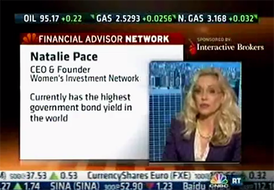 Natalie Wynne Pace is an Advocate for Sustainability, Financial Literacy & Women's Empowerment. Natalie is the bestselling author of The Power of 8 Billion: It's Up to Us and is the co-creator of the Earth Gratitude Project. She has been ranked as a No. 1 stock picker, above over 835 A-list pundits, by an independent tracking agency (TipsTraders). Her book The ABCs of Money remained at or near the #1 Investing Basics e-book on Amazon for over 3 years (in its vertical), with over 120,000 downloads and a mean 5-star ranking. The 5th edition of The ABCs of Money and the 2nd edition of Put Your Money Where Your Heart Is were released in 2021. Follow her on Instagram. Natalie Pace's easy as a pie chart nest egg strategies earned gains in the last two recessions and have outperformed the bull markets in between. That is why her Investor Educational Retreats, books and private coaching are enthusiastically recommended by Nobel Prize winning economist Gary S. Becker, TD AMERITRADE chairman Joe Moglia, Kay Koplovitz and many Main Street investors who have transformed their lives using her Thrive Budget and investing strategies. Click to view a video testimonial from Nilo Bolden. Check out Natalie Pace's Substack on Apple and Spotify. Watch videoconferences and webinars on Youtube. Other Blogs of Interest The Crypto Winter Enters Its 3rd Year. Earn $50,000 or More in Interest. Safely. Finally. Freebies and Deals for Black Friday and Cyber Monday. Auto Strikes End. EV Price Wars Continue. WeWork's Bankruptcy. Half-Empty Office Buildings. Problems in our Personal Wealth Plan. Solutions for Unaffordable Housing. The Magnificent 7 Drag NASDAQ into Another Correction Cruise Ships Give Freebies to Investors. Should You Take the Bait? Should You Take a Cruise? Bonds. Banks. The Treacherous Landscape of Keeping Our Money Safe. 7 Rules of Investing Air B N Bust? Santa Rally 2023 or Time to Get Defensive? Barbie. Oppenheimer. Strikes. Streaming Wars. Netflix. Monero: A Token of Trust? 13 Lifestyle Choices to Reduce Waste, Pollution & CO2 & Save a Boatload of Dough. China Bans Apple 11-Point Green Checklist for Schools. Artificial Intelligence and Nvidia's Blockbuster Earnings Report Biotech in a Post-Pandemic World 10 Wealth Secrets of Billionaires and Royals. What Happened to Cannabis? Bank of America has $100 Billion in Bond Losses (on Paper) The USA AAA Credit Rating is on a Negative Watch. Lithium. Essential to EV Life. I'm Just Not Good at Investing. Investors Ask Natalie. Should I Buy an S&P500 Index Fund? Investors Ask Natalie. Bonds Lost More than Stocks in 2022. 2023 Company of the Year Do Cybersecurity Risks Create Investor Opportunities? Writers Strike, While Streaming CEOs Rake In Hundreds of Millions Annually. I Lost $100,000. Investors Ask Natalie. Artificial Intelligence Report. Micron Banned in China. Intel Slashes Dividend. Buffett Loses $23 Billion. Branson's Virgin Orbit Declares Bankruptcy. Insurance Company Risks. Schwab Loses $41 Billion in Cash Deposits. Fiat. Crypto. Gold. BRICS. Real Estate. Alternative Investments. BRICS Currency. Will the Dollar Become Extinct? The Online Global Earth Gratitude Celebration 7 Green Life Hacks Fossil Fuels Touch Every Part of Our Lives Are There Any Safe, Green Banks? 7 Ways to Stash Your Cash Now. Lessons from the Silicon Valley Bank Failure. Which Countries Offer the Highest Yield for the Lowest Risk? Solar, EVs, Housing, HSAs -- the Highest-Yield in 2023? Why We Are Underweighting Banks and the Financial Industry. 2023 Bond Strategy Emotions are Not Your Friend in Investing Investor IQ Test Investor IQ Test Answers Bonds Lost -26%, Silver Held Strong. Save Thousands Annually With Smarter Energy Choices Is Your FDIC-Insured Cash Really Safe? Money Market Funds, FDIC, SIPC: Are Any of Them Safe? My 24-Year-Old is Itching to Buy a Condo. Should I Help Him? The 12-Step Guide to Successful Investing. The Bank Bail-in Plan on Your Dime. Rebalancing Your Nest Egg IQ Test. Answers to the Rebalancing Your Nest Egg IQ Test. Important Disclaimers Please note: Natalie Pace does not act or operate like a broker. She reports on financial news, and is one of the most trusted sources of financial literacy, education and forensic analysis in the world. Natalie Pace educates and informs individual investors to give investors a competitive edge in their personal decision-making. Any publicly traded companies or funds mentioned by Natalie Pace are not intended to be buy or sell recommendations. ALWAYS do your research and consult an experienced, reputable financial professional before buying or selling any security, and consider your long-term goals and strategies. Investors should NOT be all in on any asset class or individual stocks. Your retirement plan should reflect a diversified strategy, which has been designed with the assistance of a financial professional who is familiar with your goals, risk tolerance, tax needs and more. The "trading" portion of your portfolio should be a very small part of your investment strategy, and the amount of money you invest into individual companies should never be greater than your experience, wisdom, knowledge and patience. Information has been obtained from sources believed to be reliable. However, NataliePace.com does not warrant its completeness or accuracy. Opinions constitute our judgment as of the date of this publication and are subject to change without notice. This material is not intended as an offer or solicitation for the purchase or sale of any financial instrument. Securities, financial instruments or strategies mentioned herein may not be suitable for all investors. |
AuthorNatalie Pace is the co-creator of the Earth Gratitude Project and the author of The Power of 8 Billion: It's Up to Us, The ABCs of Money, The ABCs of Money for College, The Gratitude Game and Put Your Money Where Your Heart Is. She is a repeat guest & speaker on national news shows and stages. She has been ranked the No. 1 stock picker, above over 830 A-list pundits, by an independent tracking agency, and has been saving homes and nest eggs since 1999. Archives
July 2024
Categories |







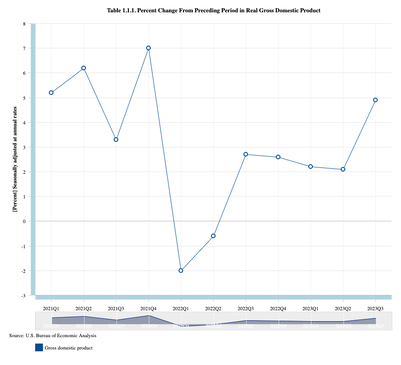
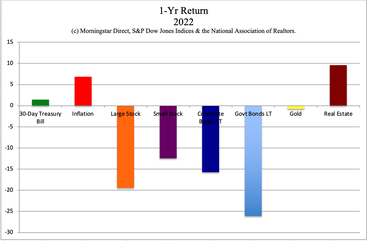

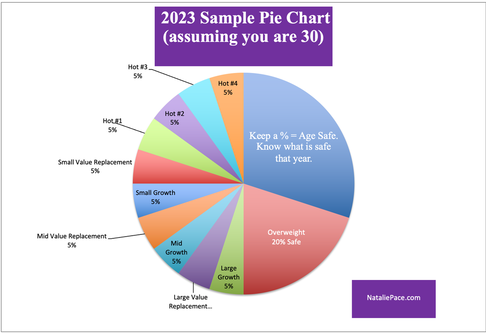
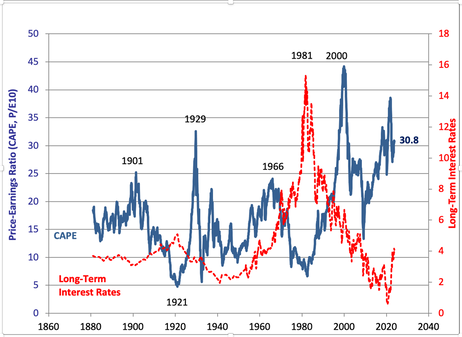
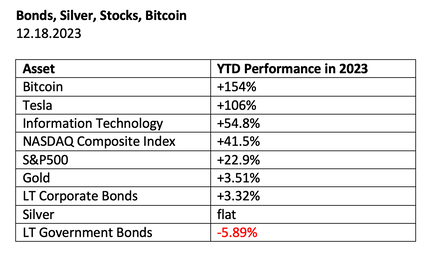
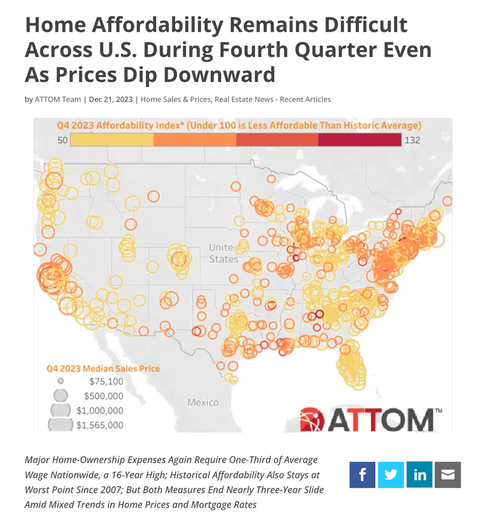
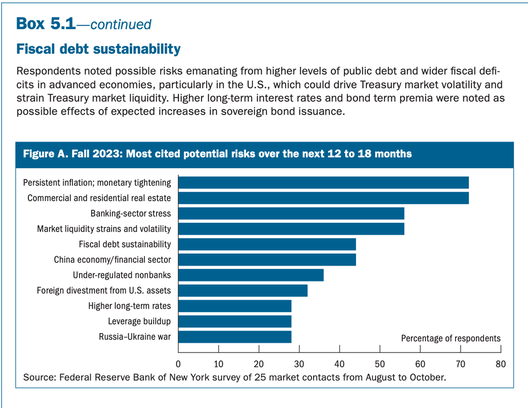
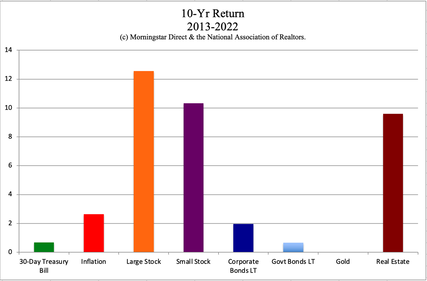
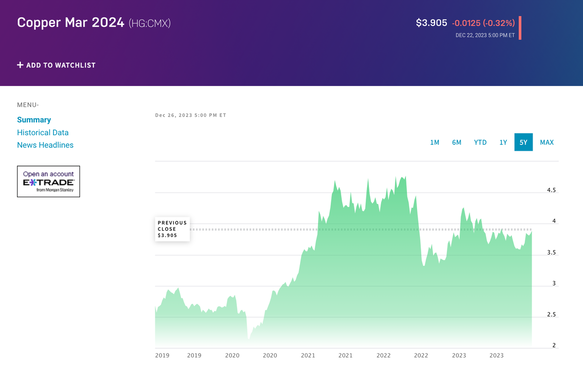



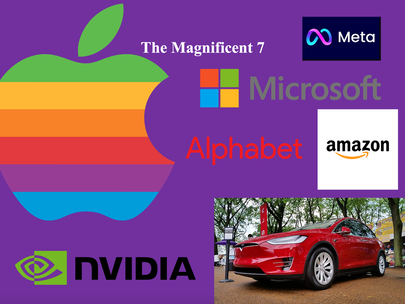
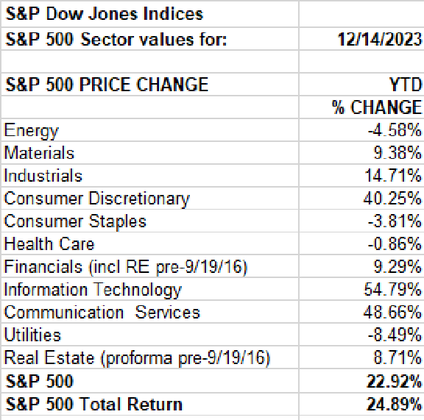
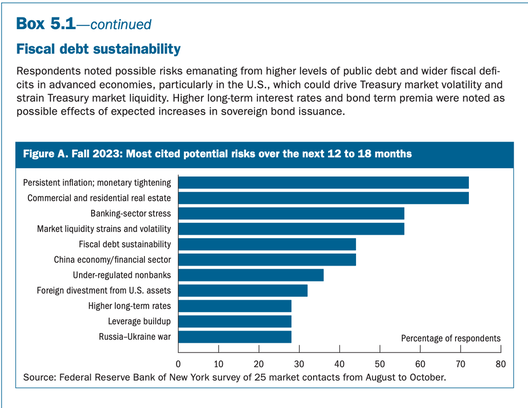
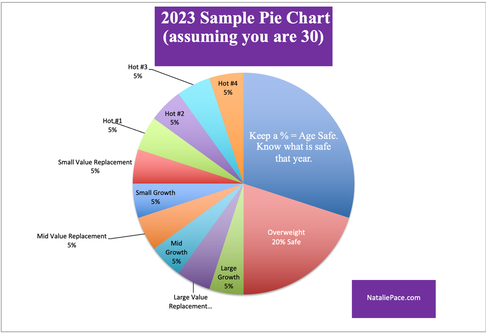
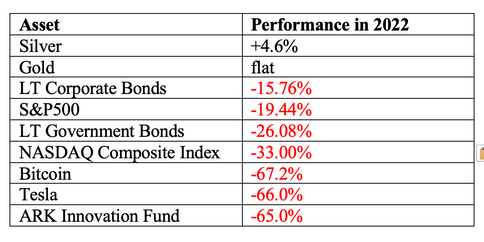

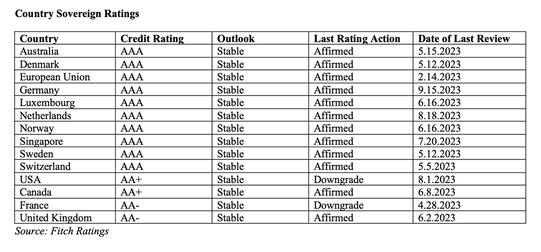



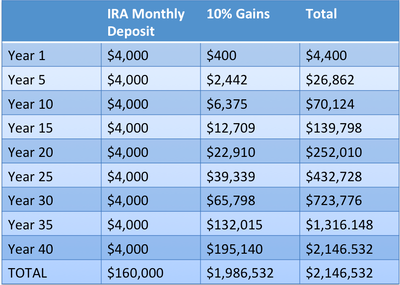
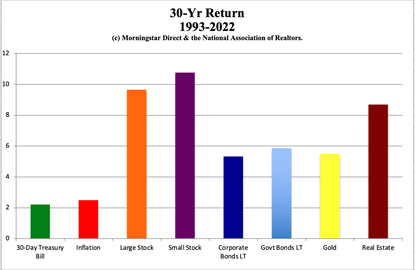

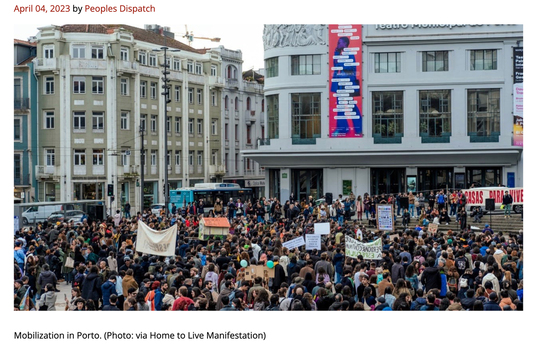







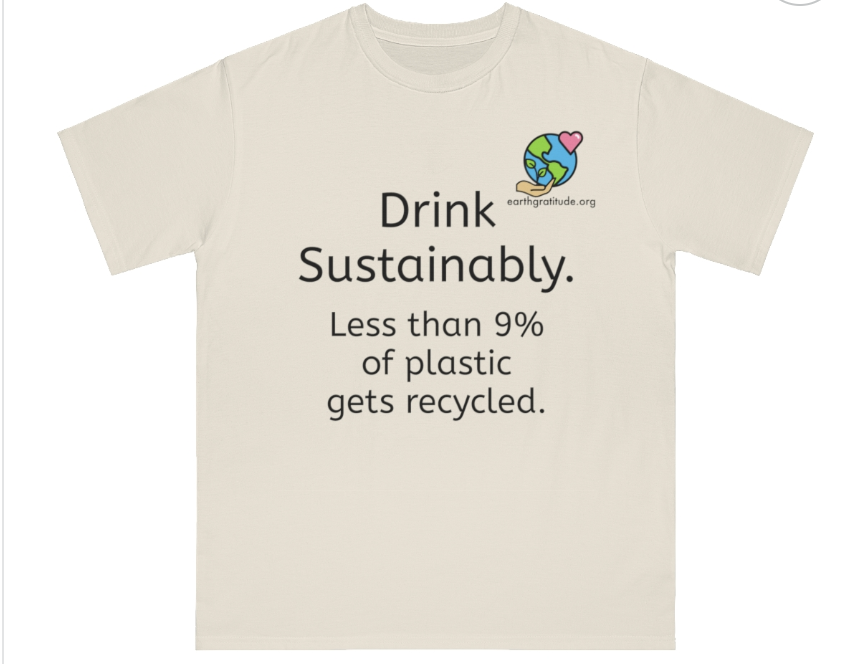

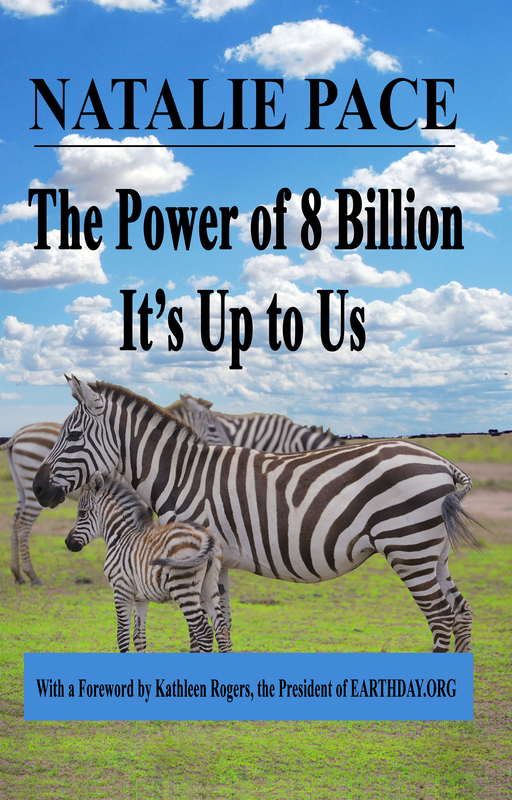
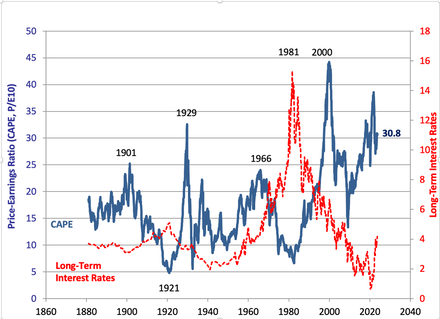
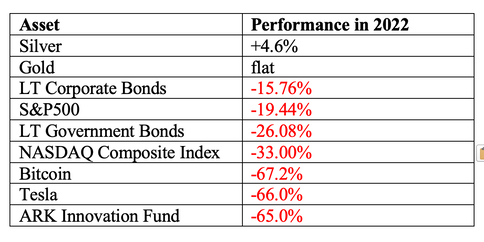
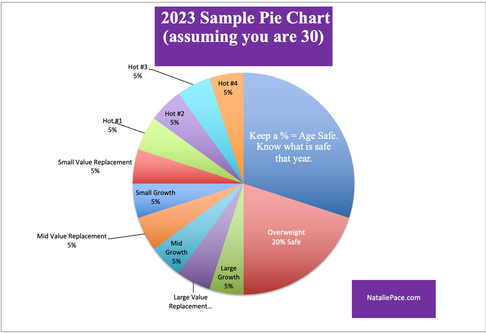
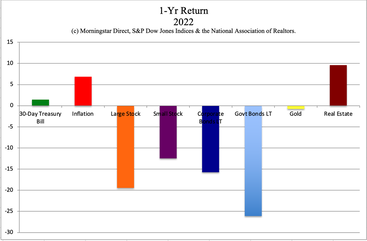
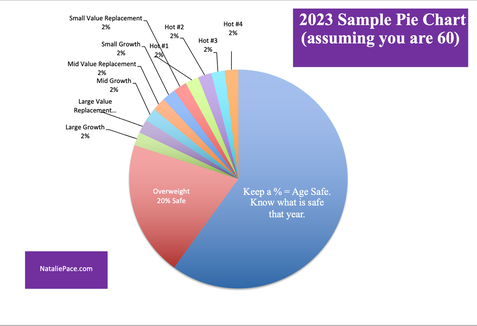
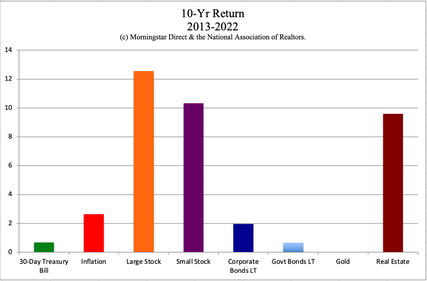
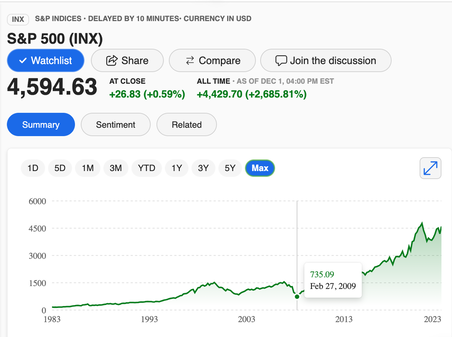
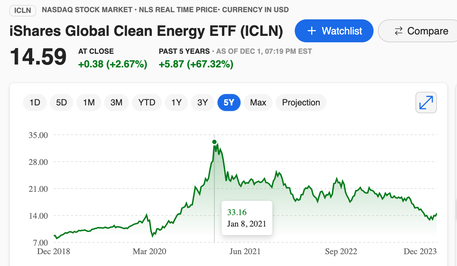
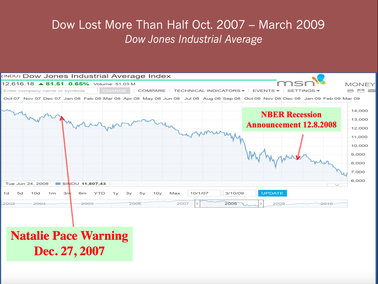
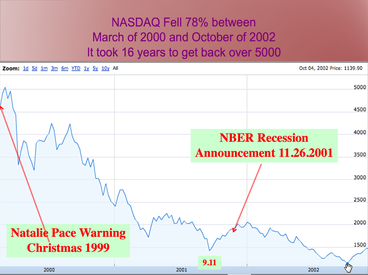
 RSS Feed
RSS Feed